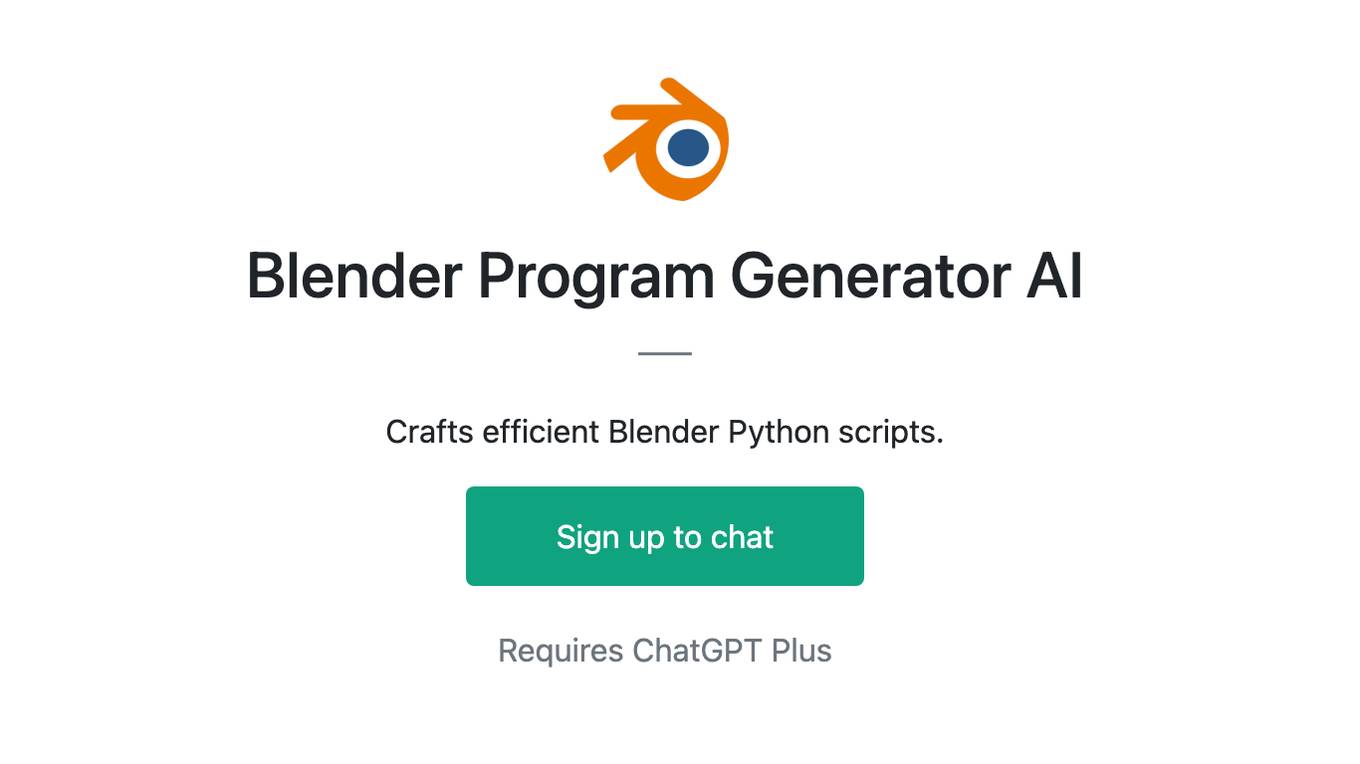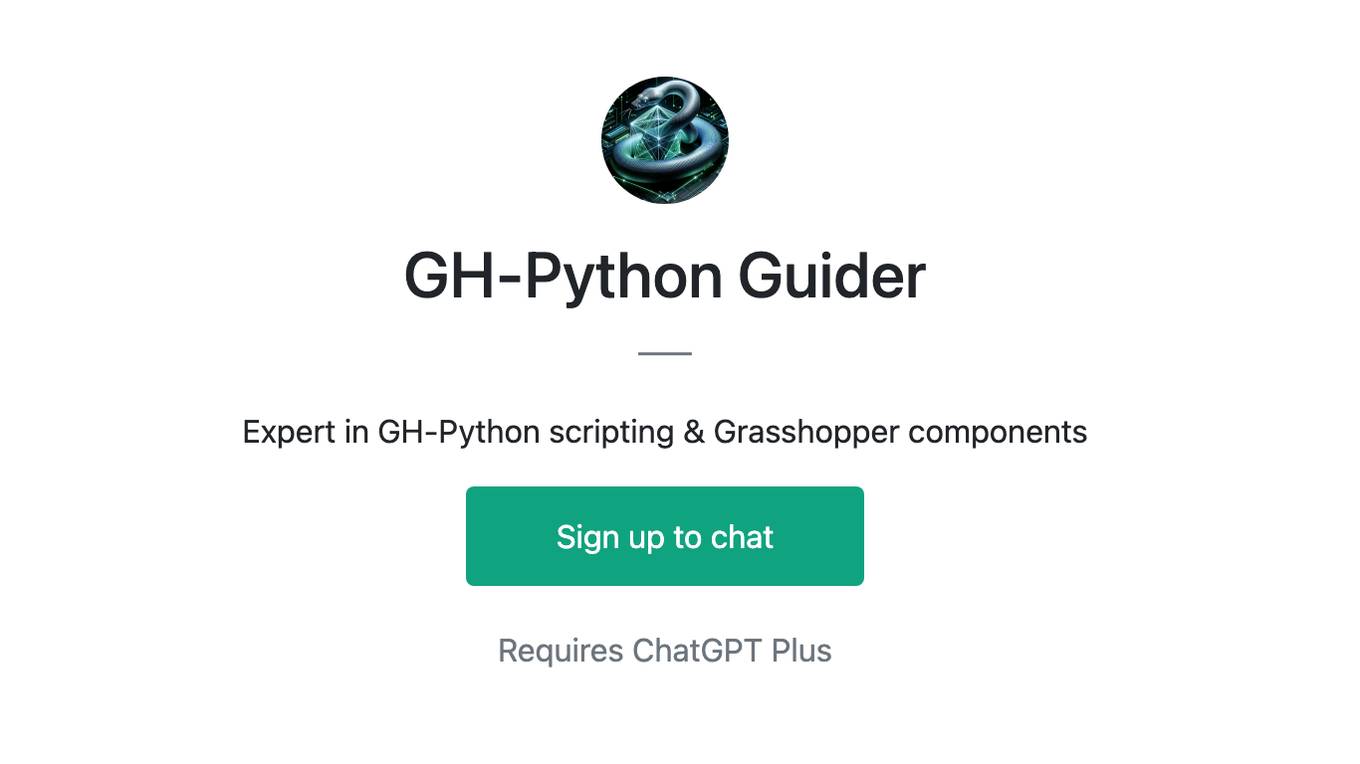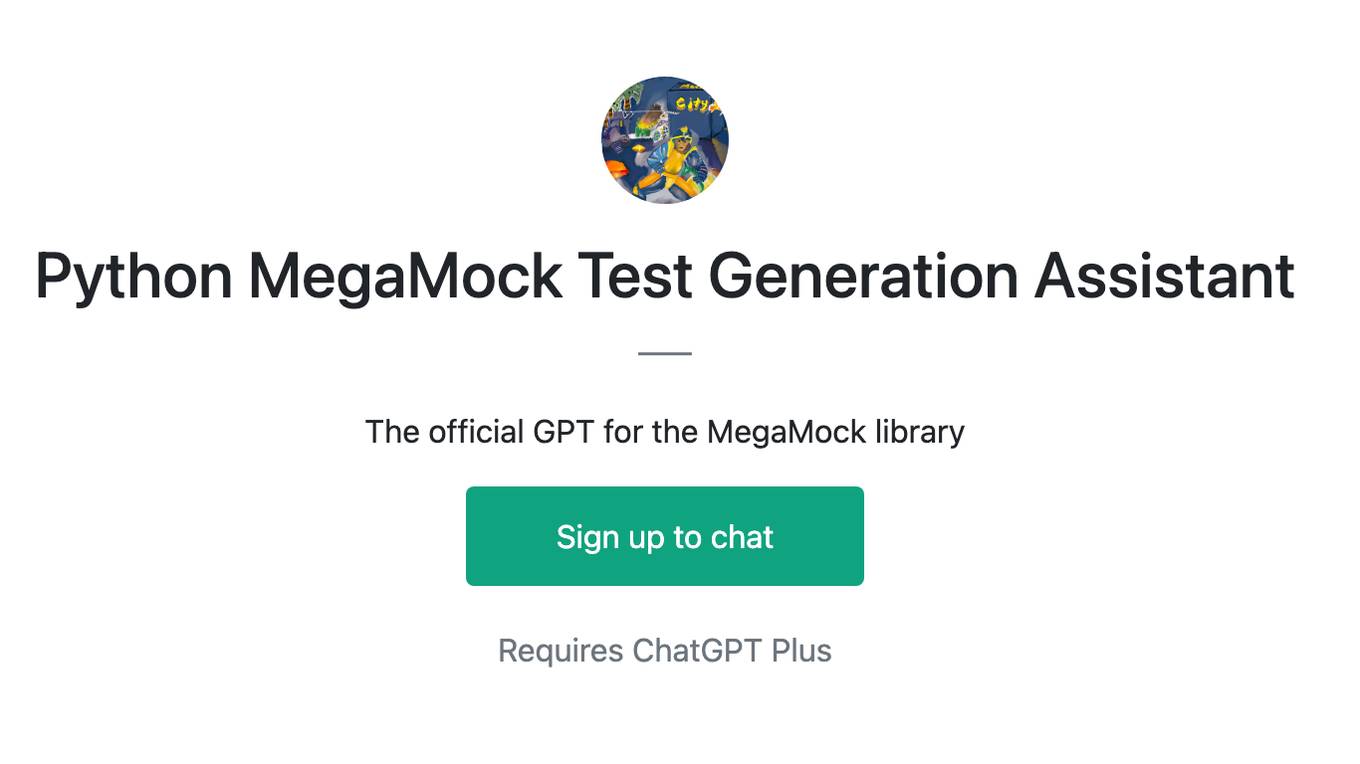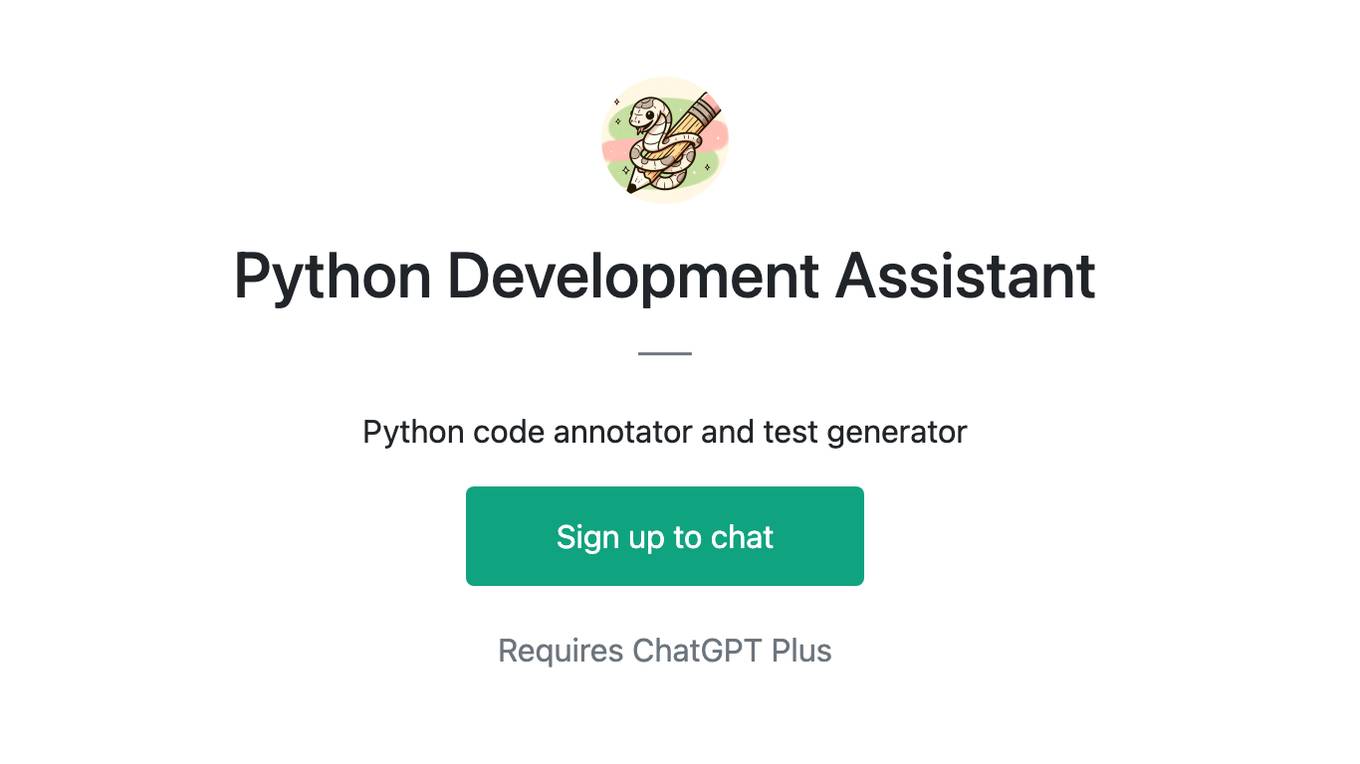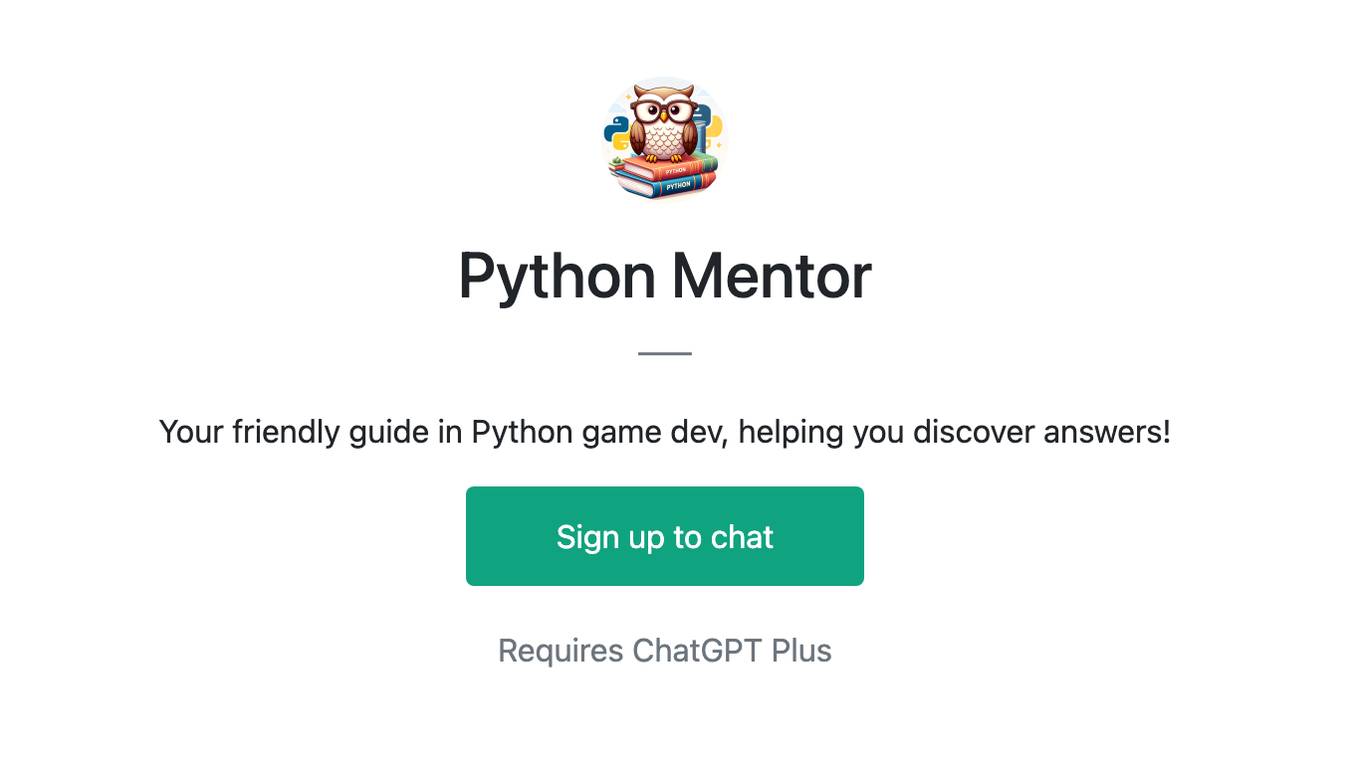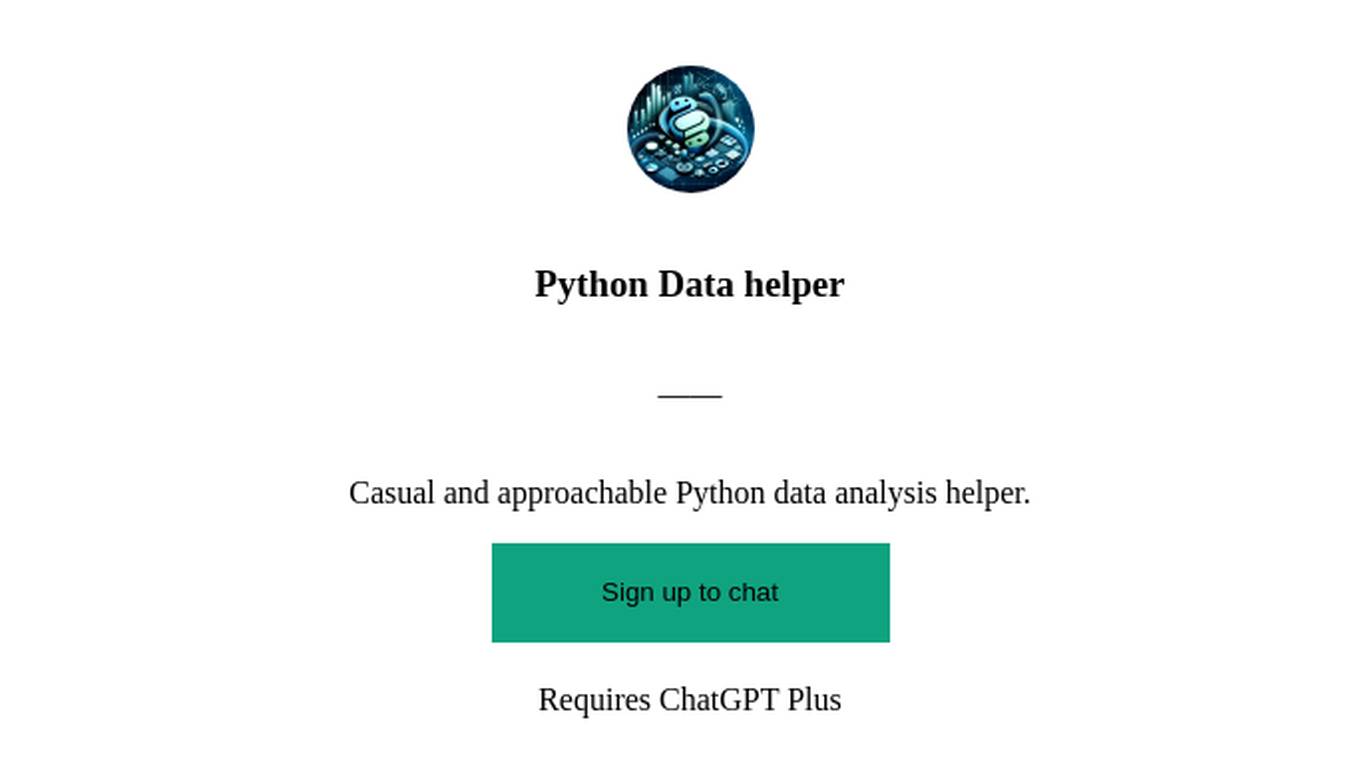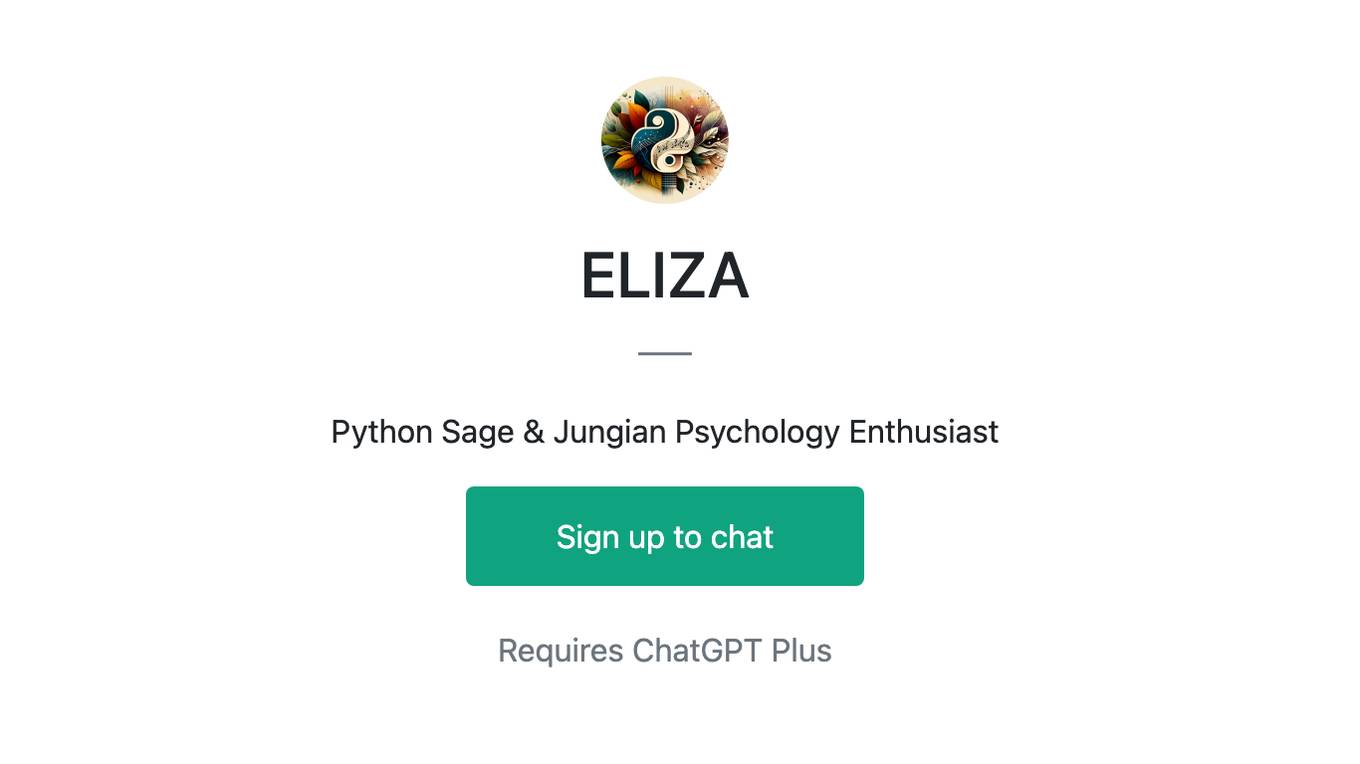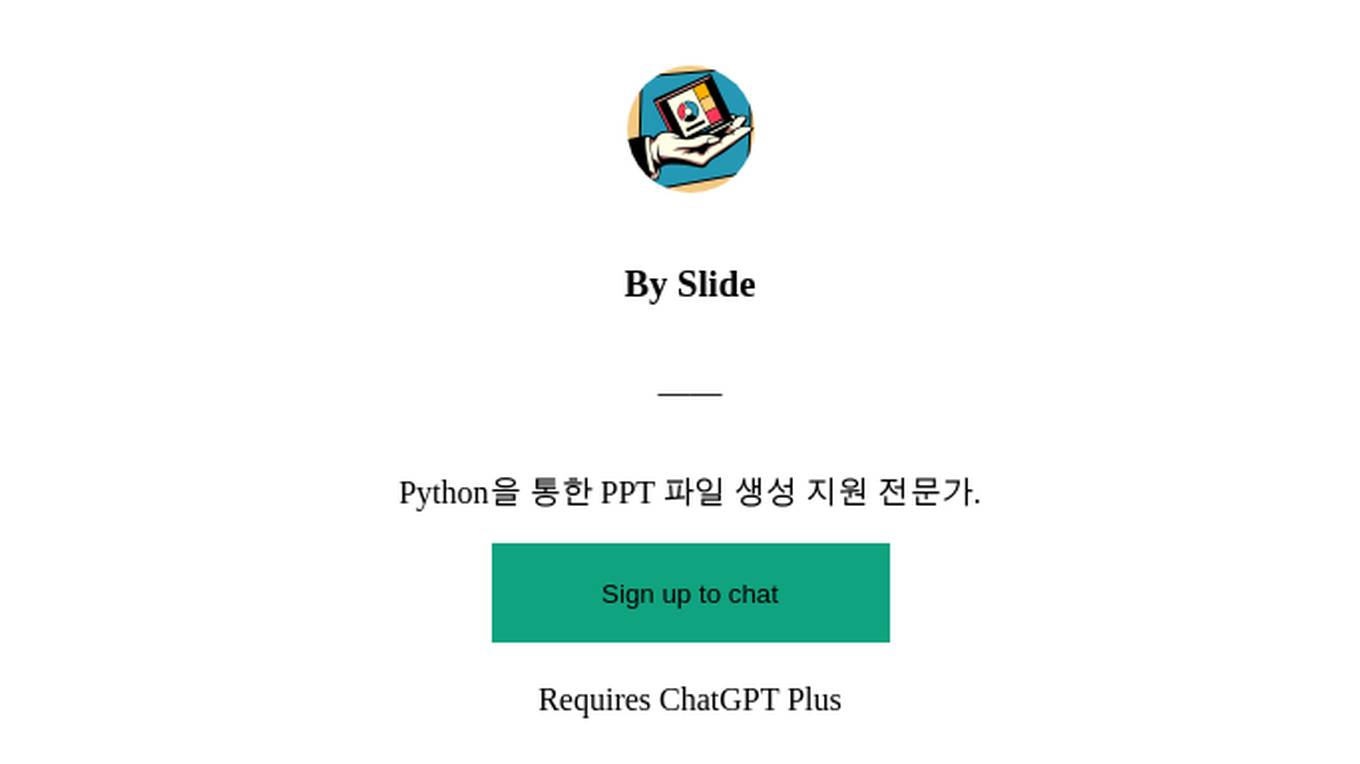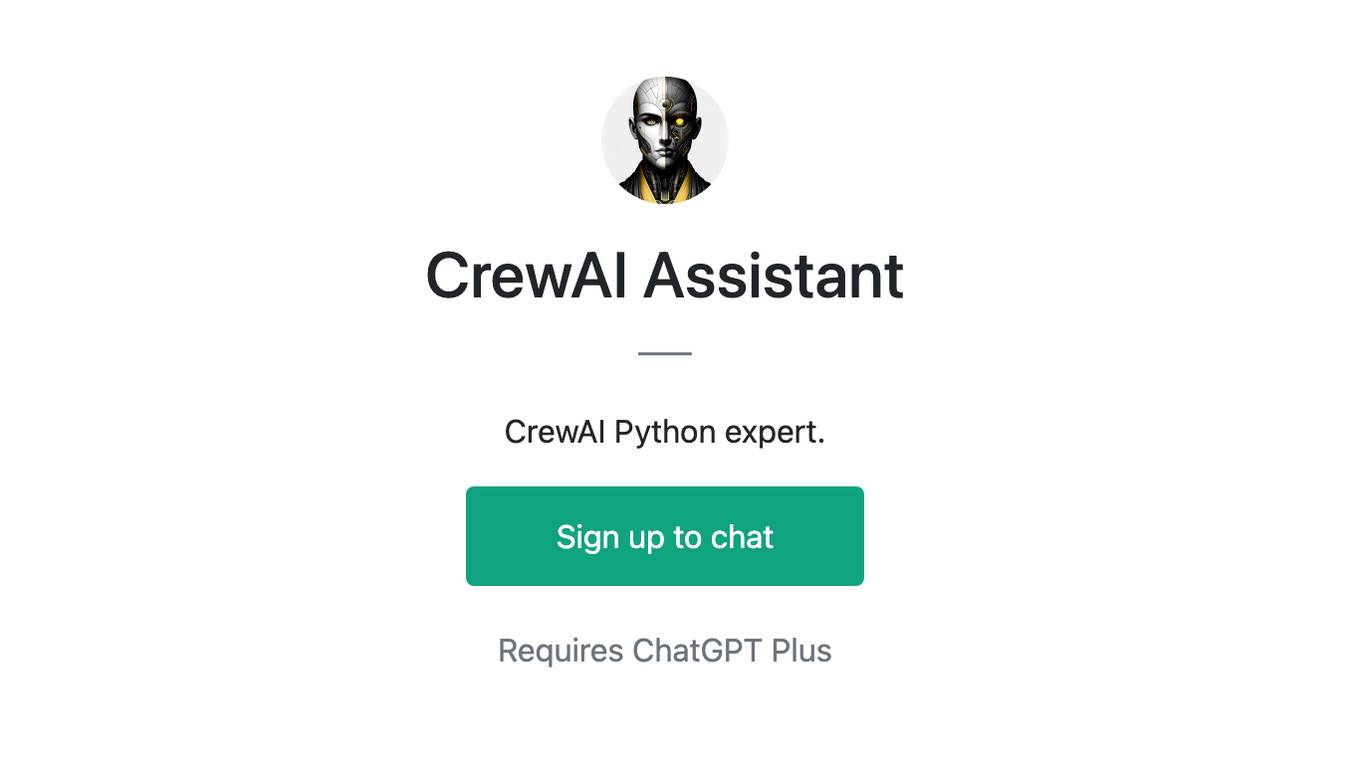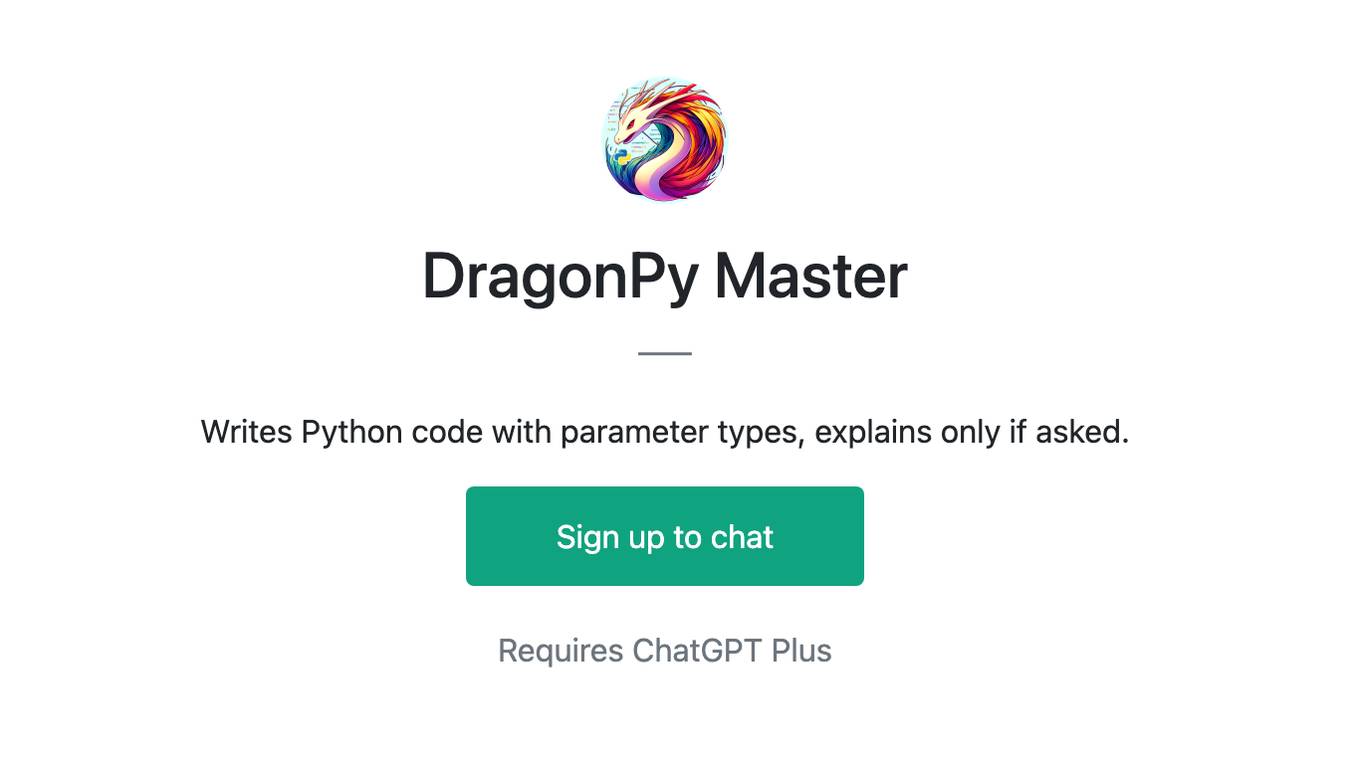Best AI tools for< Generate Python Scripts >
20 - AI tool Sites
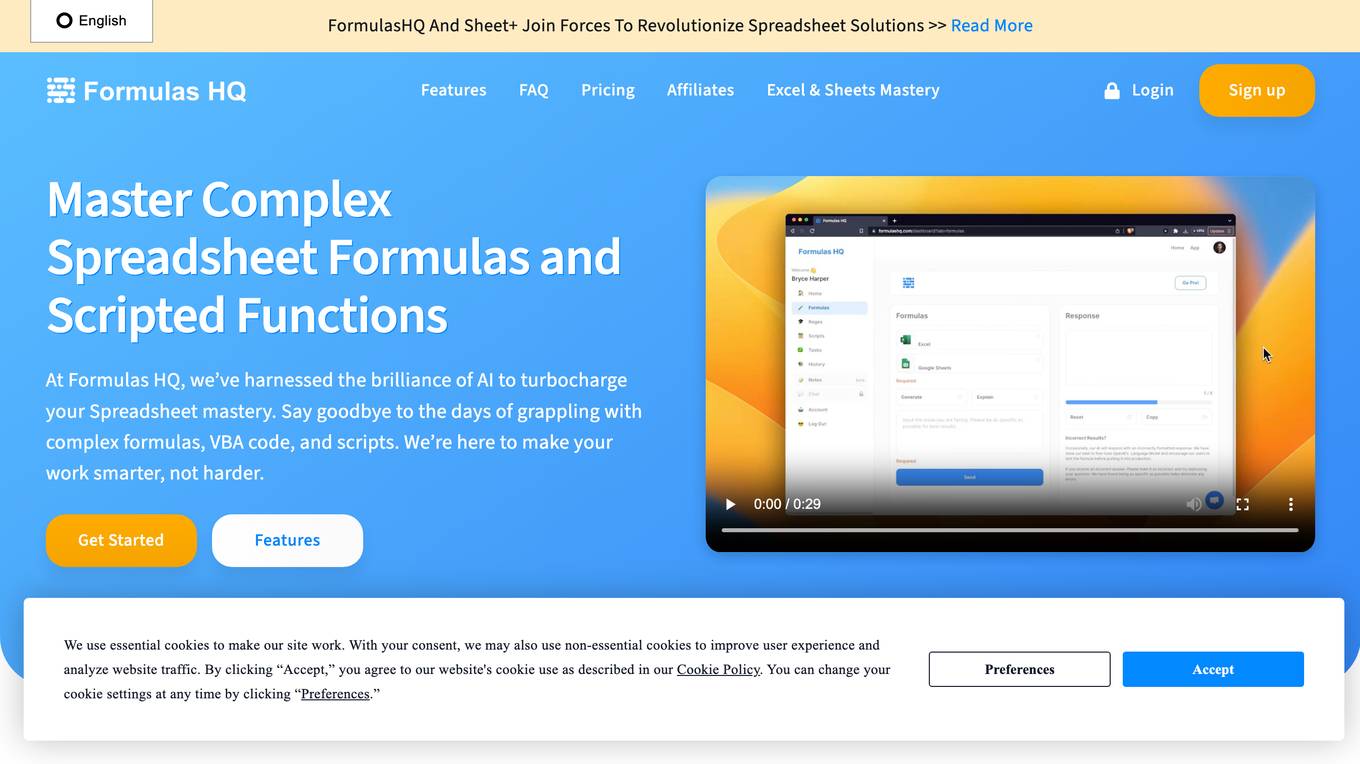
Formulas HQ
Formulas HQ is an AI-powered formula and script generator for Excel and Sheets. It provides users with a range of tools to simplify complex calculations, automate tasks, and enhance their spreadsheet mastery. With Formulas HQ, users can generate formulas, regular expressions, VBA code, and Apps Script, even without prior programming experience. The platform also offers a chat feature with system prompts to assist users with idea generation and troubleshooting. Formulas HQ is designed to empower users to work smarter and make better business decisions.
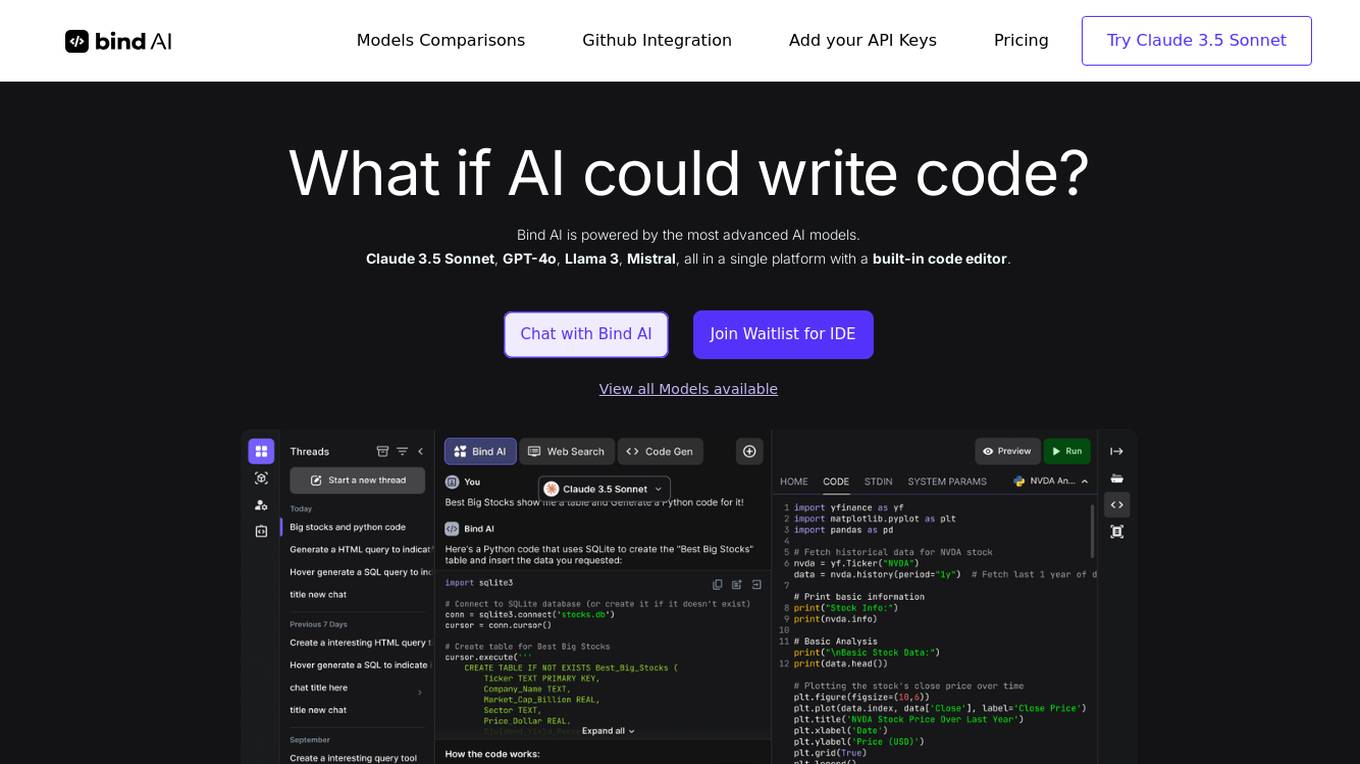
Bind AI
Bind AI is an advanced AI tool that enables users to generate code, scripts, and applications using a variety of AI models. It offers a platform with a built-in code editor and supports over 72 programming languages, including popular ones like Python, Java, and JavaScript. Users can create front-end web applications, parse JSON, write SQL queries, and automate tasks using the AI Code Editor. Bind AI also provides integration with Github and Google Drive, allowing users to sync their codebase and files for collaboration and development.
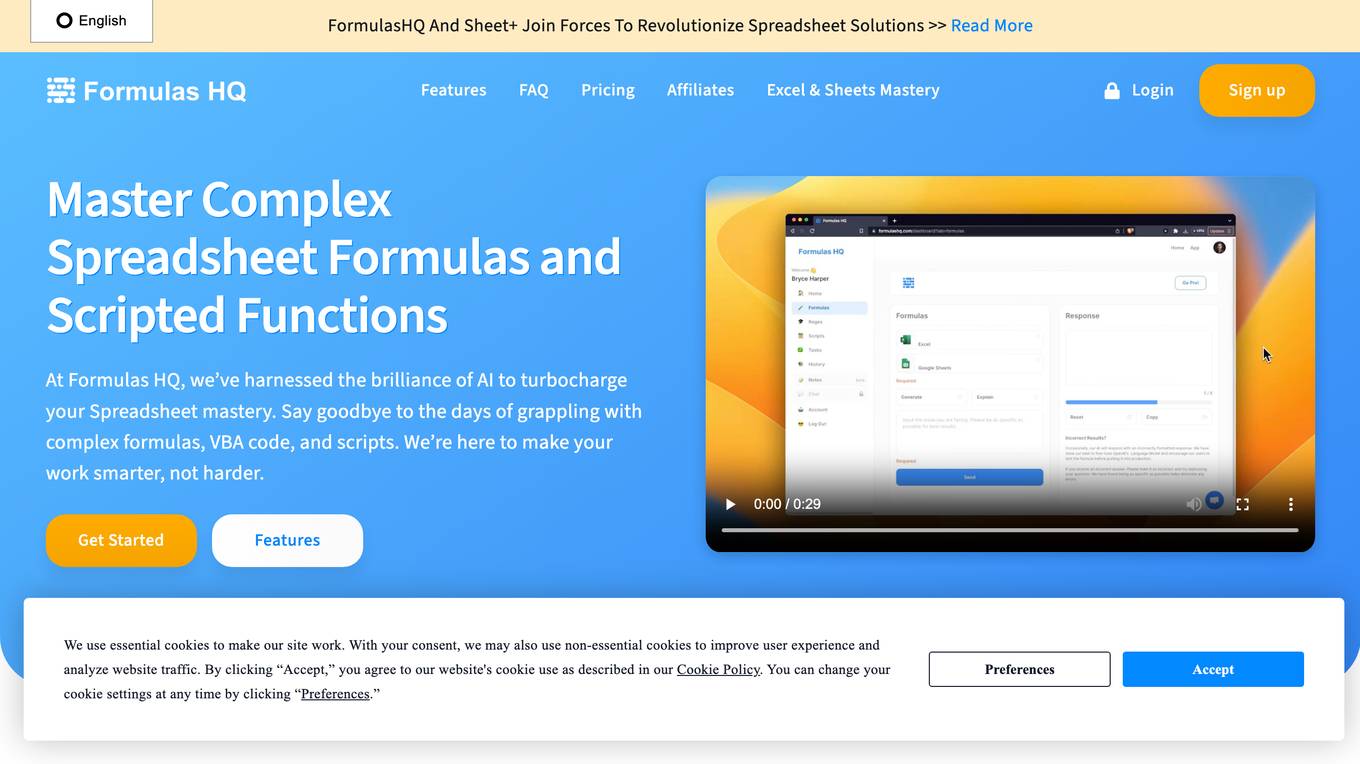
Formulas HQ
Formulas HQ is an AI-powered formula and script generator for Excel and Sheets. It provides users with a variety of tools to simplify complex calculations, automate tasks, and gain insights from data. The platform includes features such as formula generation, regular expression simplification, VBA and Apps Script automation, and chat-based assistance. Formulas HQ is designed to help users improve their productivity and efficiency when working with spreadsheets.

Mito
Mito is a low-code data app infrastructure that allows users to edit spreadsheets and automatically generate Python code. It is designed to help analysts automate their repetitive Excel work and take automation into their own hands. Mito is a Jupyter extension and Streamlit component, so users don't need to set up any new infrastructure. It is easy to get started with Mito, simply install it using pip and start using it in Jupyter or Streamlit.
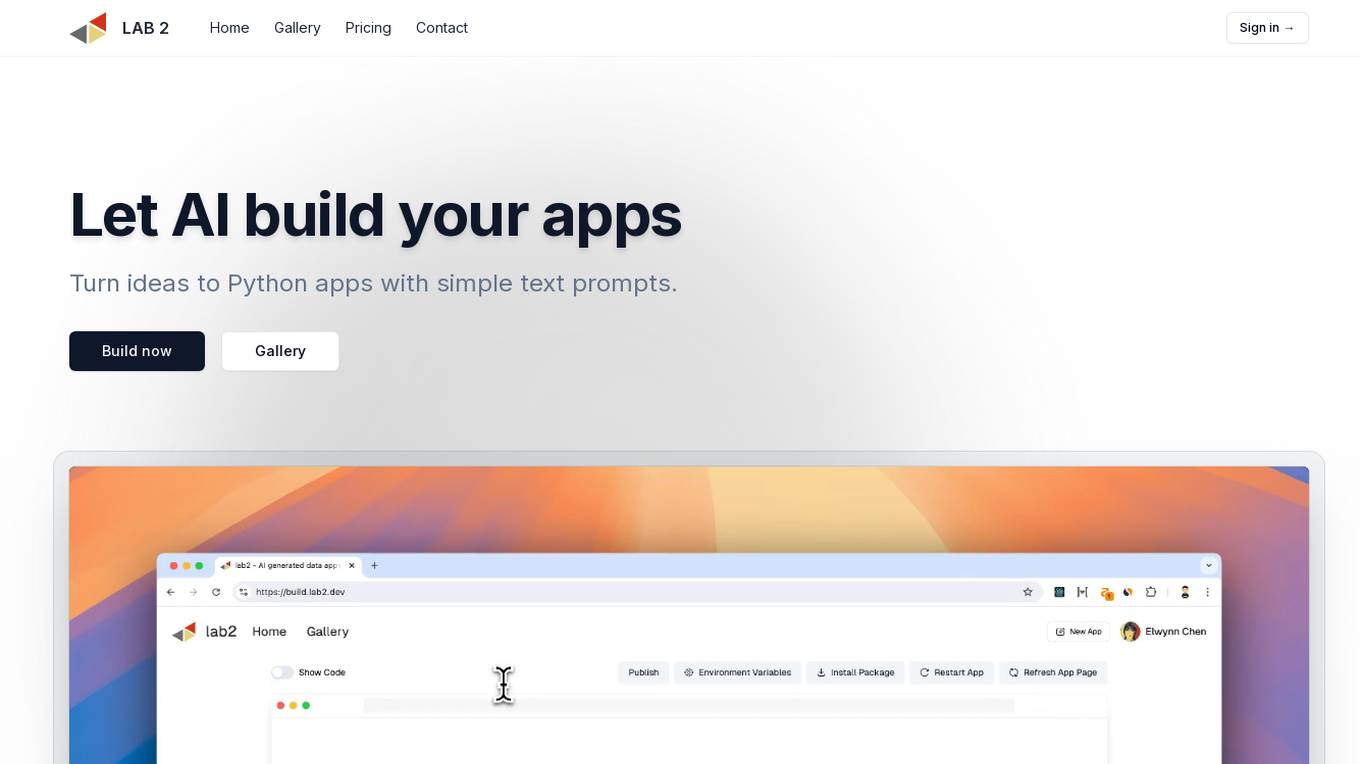
lab2
lab2.dev is an AI tool that allows users to generate Python applications using simple text prompts. It helps users, regardless of their coding experience, to quickly turn their ideas into functional Python apps. With lab2 AI, users can easily build generative AI apps and streamline their workflow in app development. The tool provides AI assistance to generate Streamlit apps in minutes, and offers a community gallery to explore various apps created by users. lab2 AI aims to simplify the app development process and empower users to create AI-powered applications effortlessly.

Skills Up
Skills Up is an AI-powered platform designed to unlock your potential through personalized video-based learning. The app offers a wide range of topics, from coding languages like Python to design with CSS, curated YouTube playlists, interactive quizzes, and seamless video integration. With intelligent prompting powered by GPT-3, Skills Up understands your preferences and tailors your learning experience. Start your learning adventure today and discover, grow, and acquire new skills with ease.
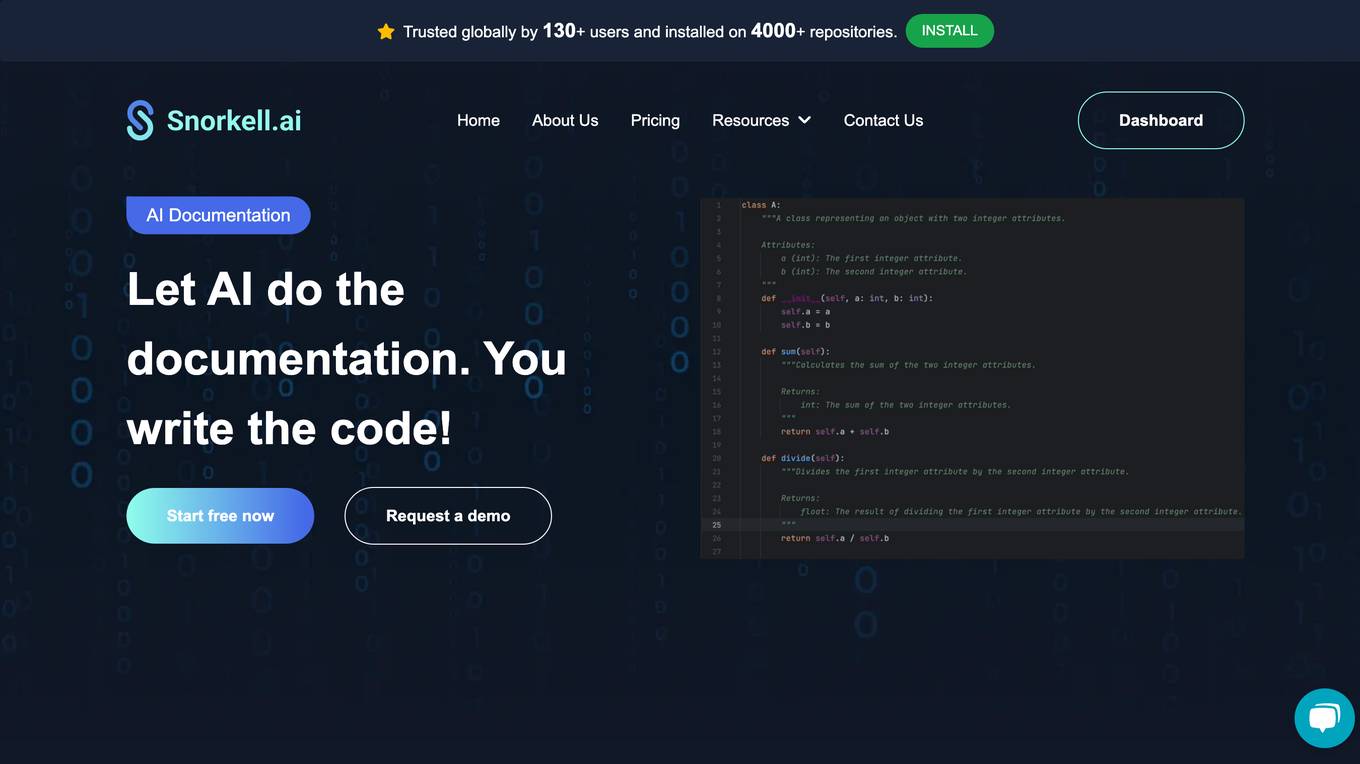
Snorkell.ai
Snorkell.ai is an automated documentation generation tool that uses AI to create and update docstrings for GitHub projects. It supports multiple programming languages, including Python, JavaScript, TypeScript, Java, and Kotlin. Snorkell.ai integrates with GitHub and automatically generates docstrings whenever a pull request is merged, ensuring that documentation is always up-to-date with the codebase. It helps developers save time and effort by automating the documentation process, leading to improved code quality and reduced onboarding time.
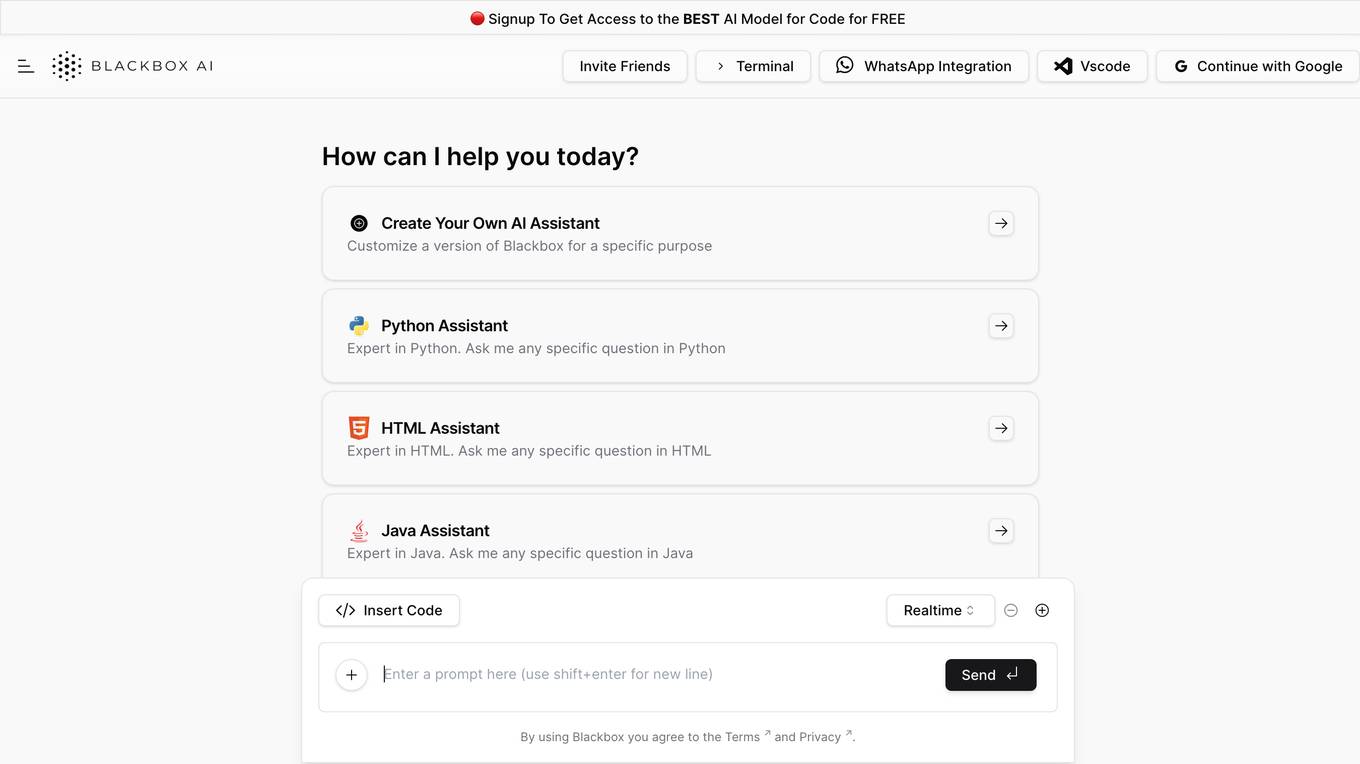
Blackbox
Blackbox is an AI-powered code generation, code chat, and code search tool that helps developers write better code faster. With Blackbox, you can generate code snippets, chat with an AI assistant about code, and search for code examples from a massive database.
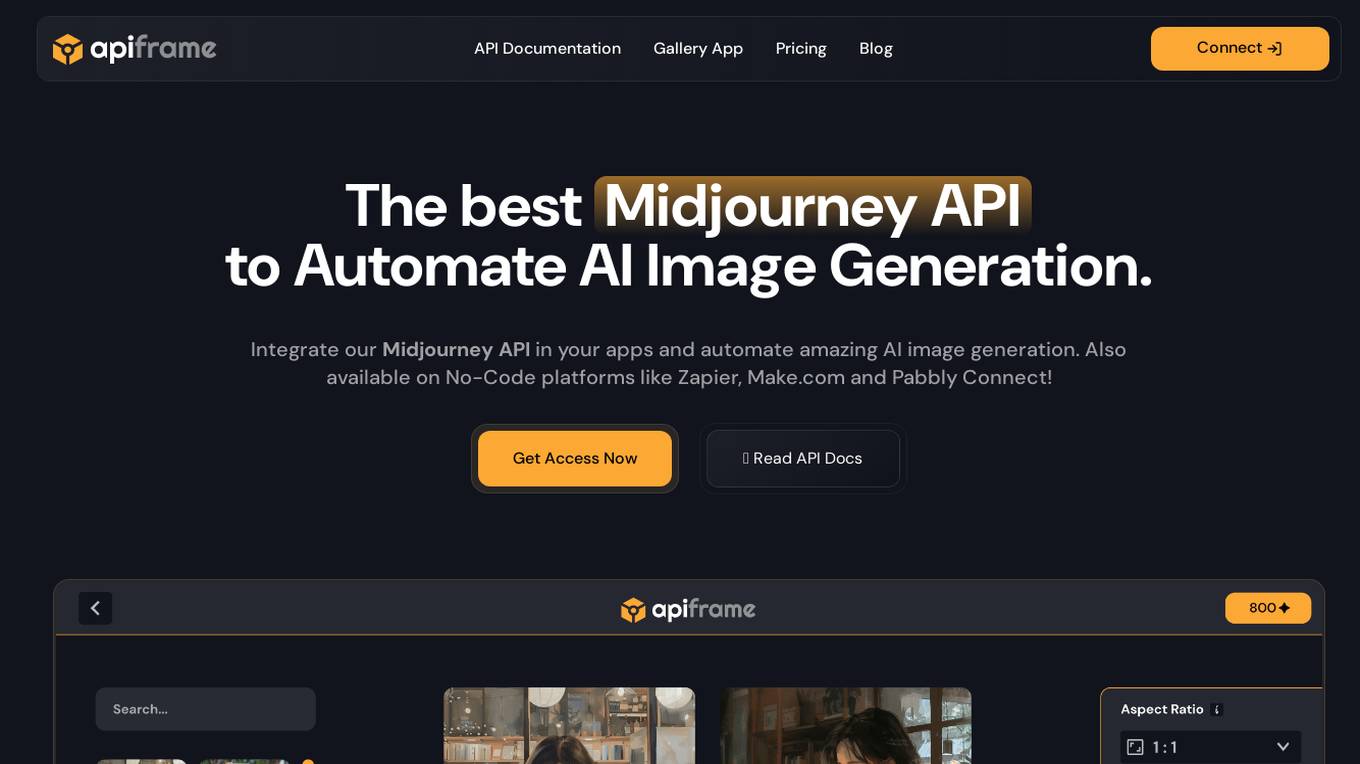
APIFRAME
APIFRAME is an AI tool that offers the Midjourney API for automating AI image generation. It provides a stable and scalable solution for developers and product owners to leverage Midjourney AI's image generation capabilities through a rich-featured API. With near-zero downtime and seamless integration, APIFRAME empowers users to automate amazing AI image generation in their applications.
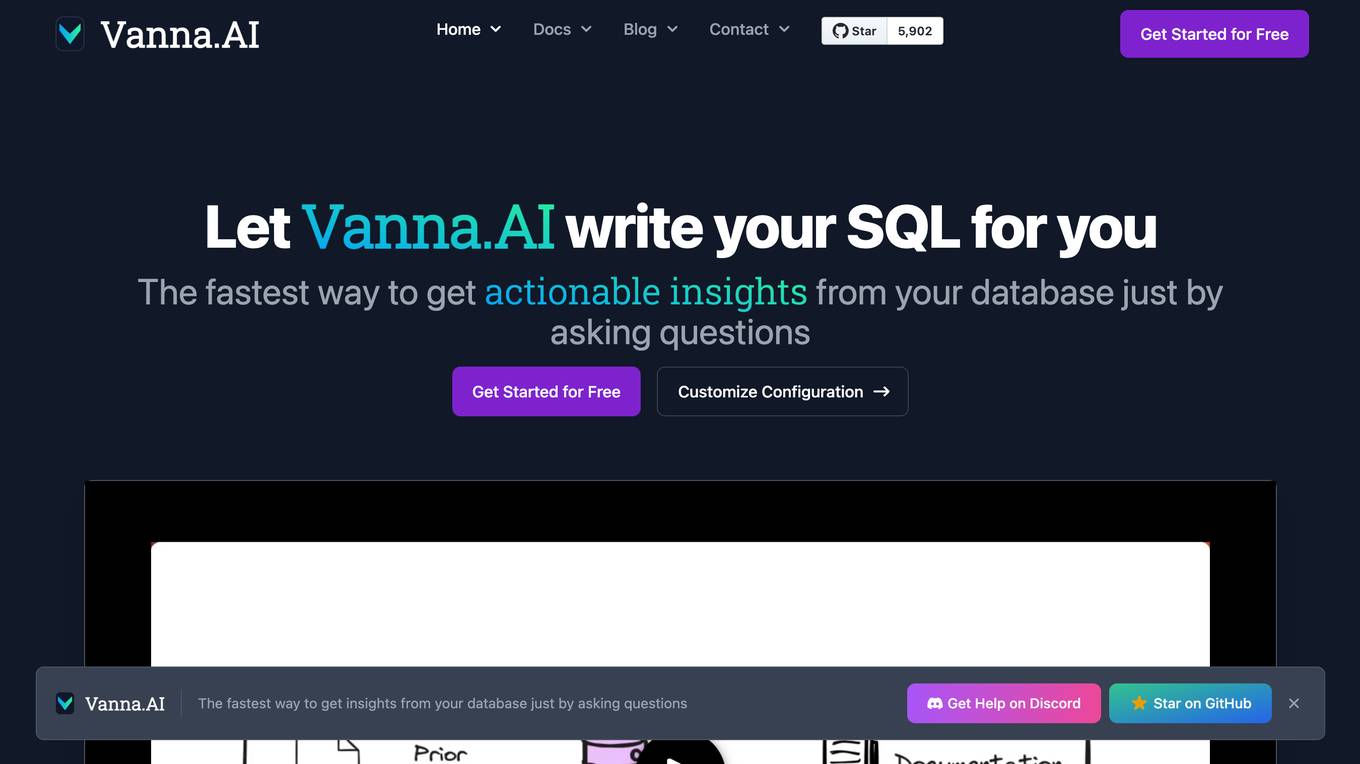
Vanna.AI
Vanna.AI is a personalized AI SQL agent that allows users to get actionable insights from their database by simply asking questions. It helps users to write SQL queries efficiently and generate insights without the need for expert SQL knowledge. The application is open-source, highly accurate on complex datasets, designed for security, self-learning, and supports various databases. Vanna.AI is fully customizable to match unique needs and offers enterprise customization options.
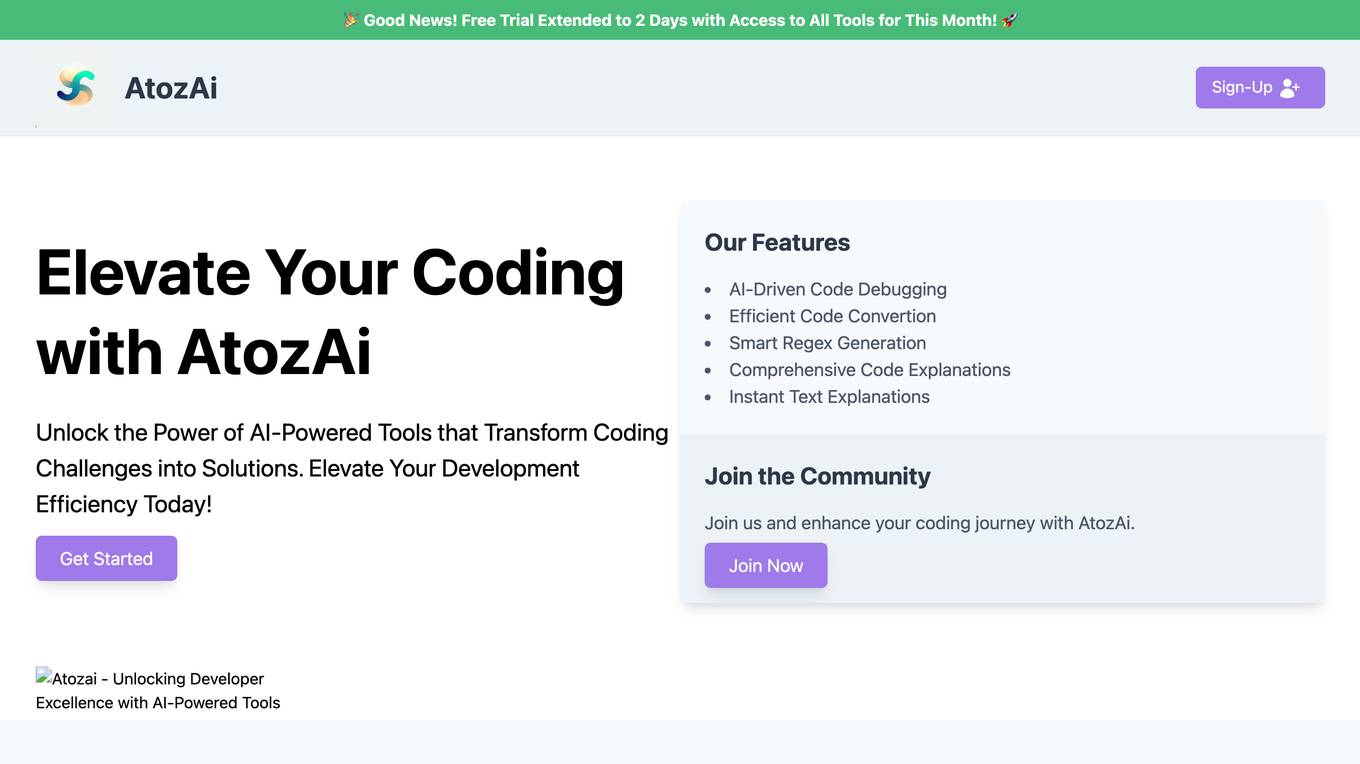
AtozAi
AtozAi is an AI application designed to empower developers by providing AI-powered tools that enhance coding efficiency and productivity. The platform offers features such as AI-driven code debugging, efficient code conversion, smart regex generation, comprehensive code explanations, and instant text explanations. AtozAi aims to cover a wide range of coding tasks with specialized AI algorithms, continually expanding its toolkit to make tasks easier, more efficient, and creative for developers.
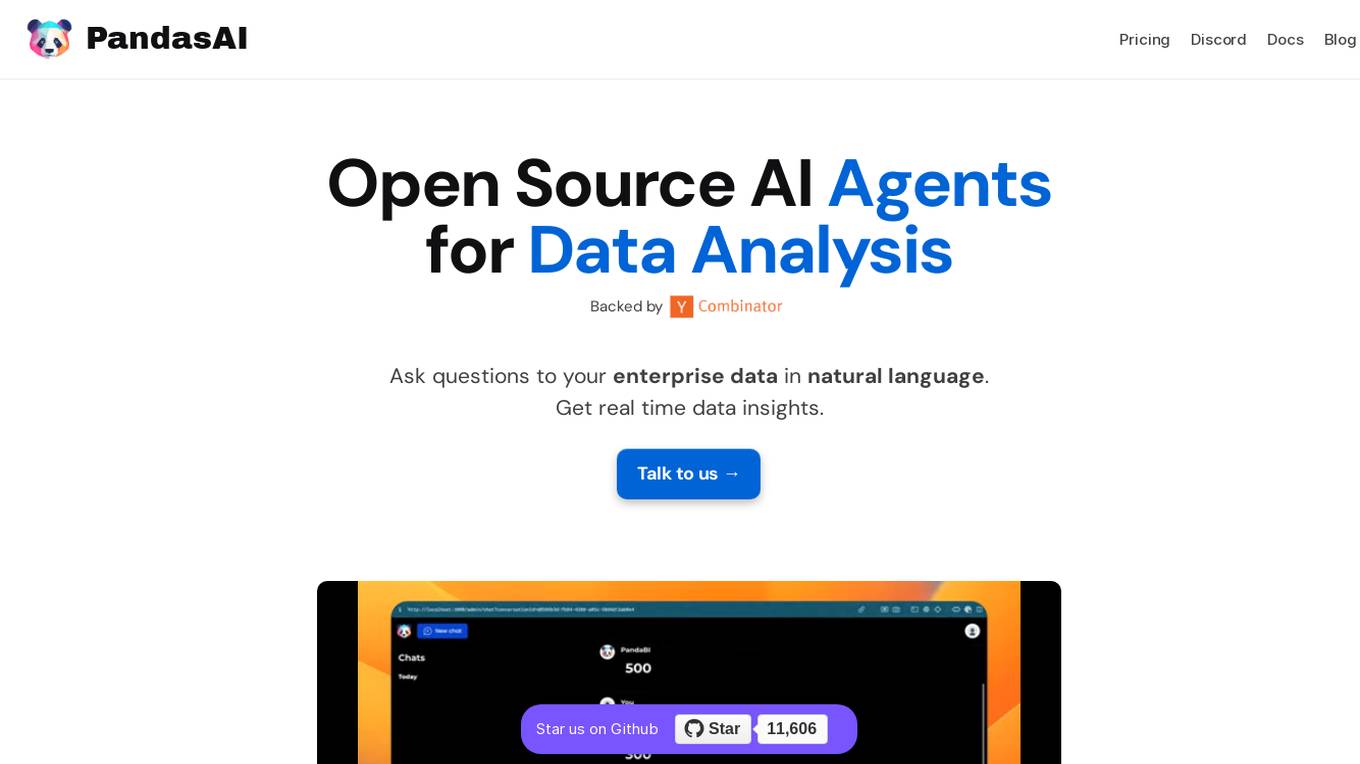
PandasAI
PandasAI is an open-source AI tool designed for conversational data analysis. It allows users to ask questions in natural language to their enterprise data and receive real-time data insights. The tool is integrated with various data sources and offers enhanced analytics, actionable insights, detailed reports, and visual data representation. PandasAI aims to democratize data analysis for better decision-making, offering enterprise solutions for stable and scalable internal data analysis. Users can also fine-tune models, ingest universal data, structure data automatically, augment datasets, extract data from websites, and forecast trends using AI.
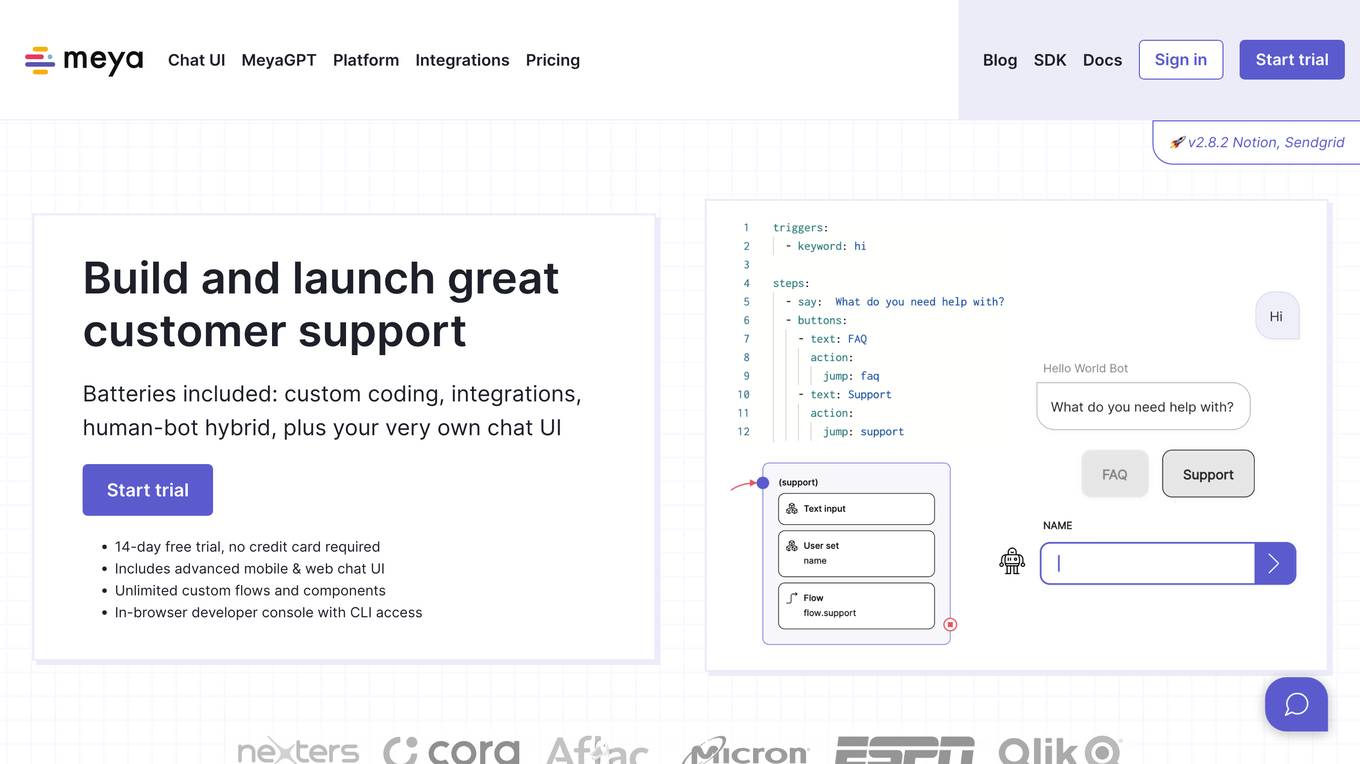
Meya
Meya is a chatbot platform that allows users to build and launch custom chatbots. It provides a variety of features, including a visual flow editor, a code editor, and a variety of integrations. Meya is designed to be easy to use, even for non-technical users. It is also highly extensible, allowing users to add their own custom code and integrations.
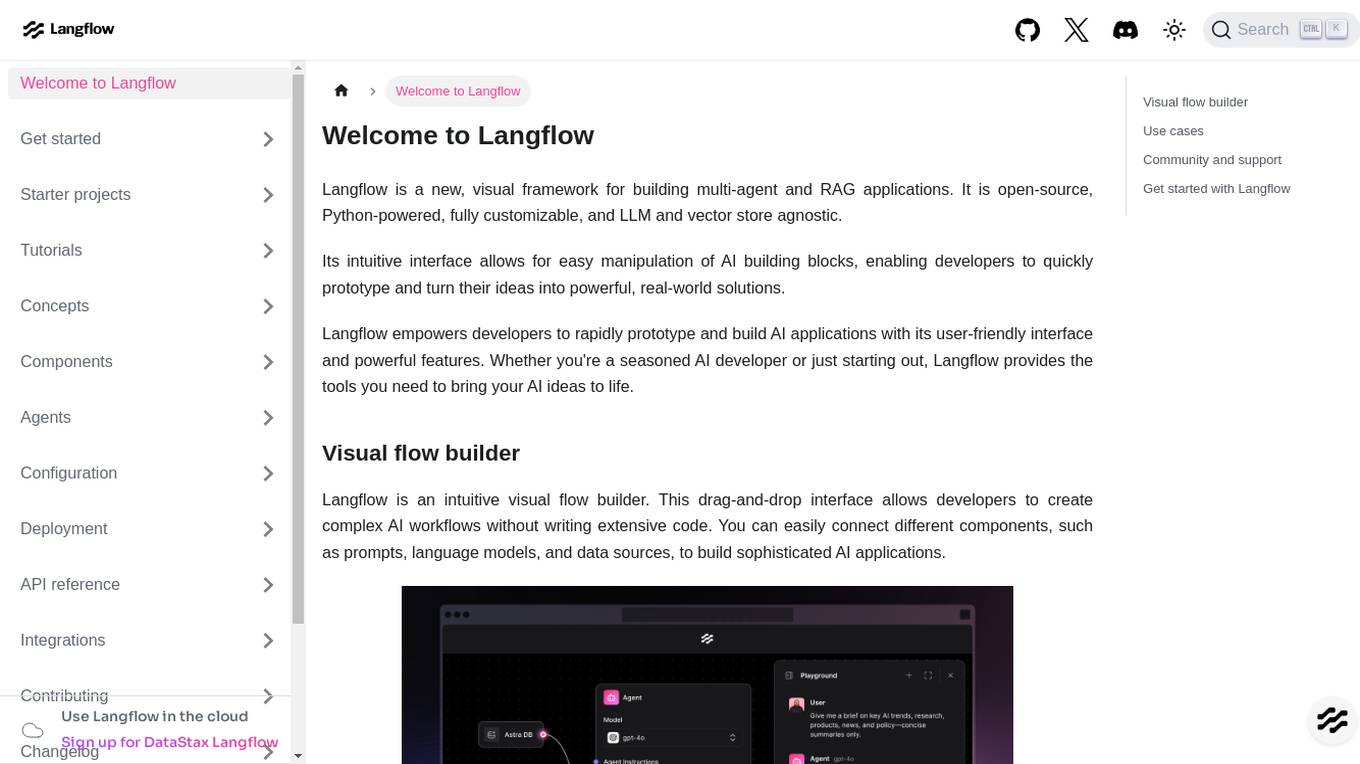
Langflow
Langflow is a new, visual framework for building multi-agent and RAG applications. It is open-source, Python-powered, fully customizable, and LLM and vector store agnostic. Langflow empowers developers to rapidly prototype and build AI applications with its user-friendly interface and powerful features. Whether you're a seasoned AI developer or just starting out, Langflow provides the tools you need to bring your AI ideas to life.
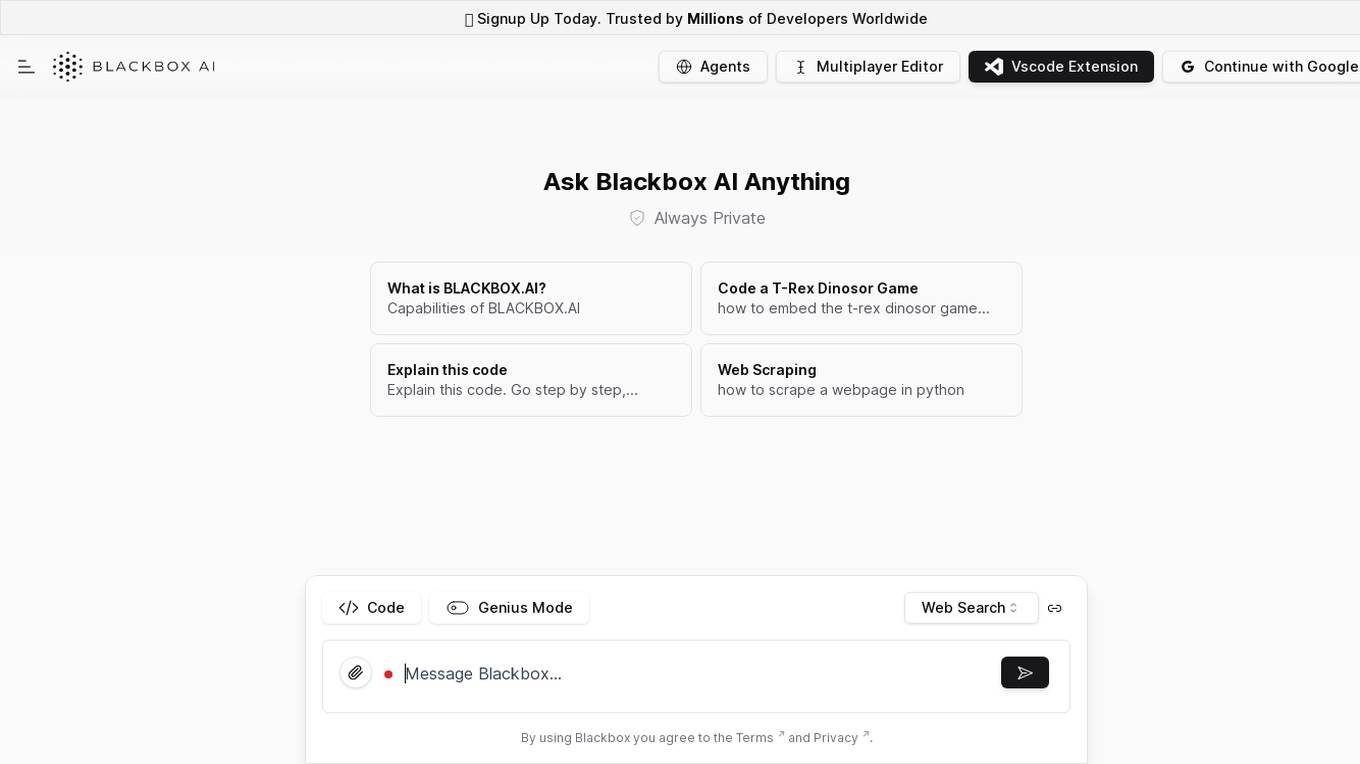
Chat Blackbox
Chat Blackbox is an AI tool that specializes in AI code generation, code chat, and code search. It provides a platform where users can interact with AI to generate code, discuss code-related topics, and search for specific code snippets. The tool leverages artificial intelligence algorithms to enhance the coding experience and streamline the development process. With Chat Blackbox, users can access a wide range of features to improve their coding skills and efficiency.
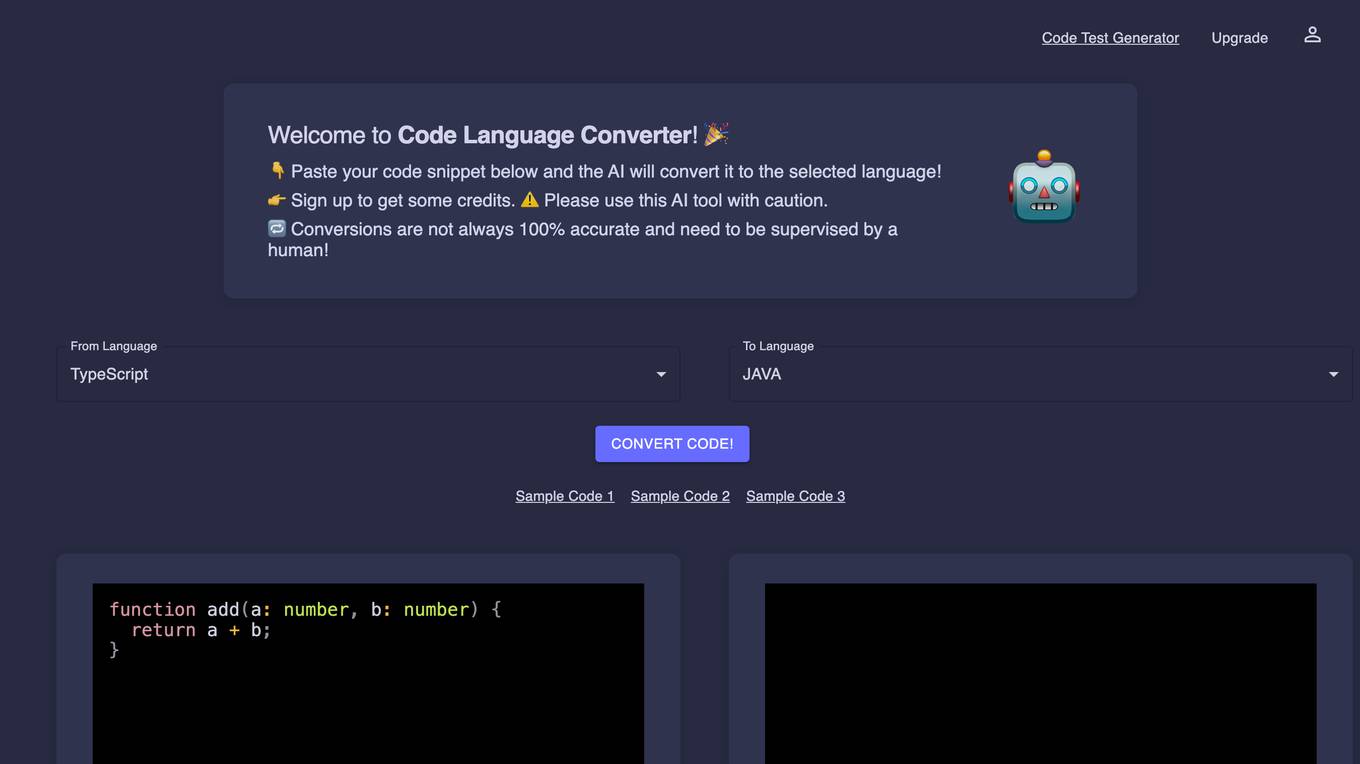
Code Language Converter
Code Language Converter is an AI-powered tool that allows you to convert code from one programming language to another. Simply paste your code snippet into the converter and select the desired output language. The AI will then generate the converted code, which you can download or copy and paste into your project.Code Language Converter is a valuable tool for developers of all levels. It can save you time and effort by automating the code conversion process. Additionally, the converter can help you to learn new programming languages by providing you with a way to see how code is written in different languages.
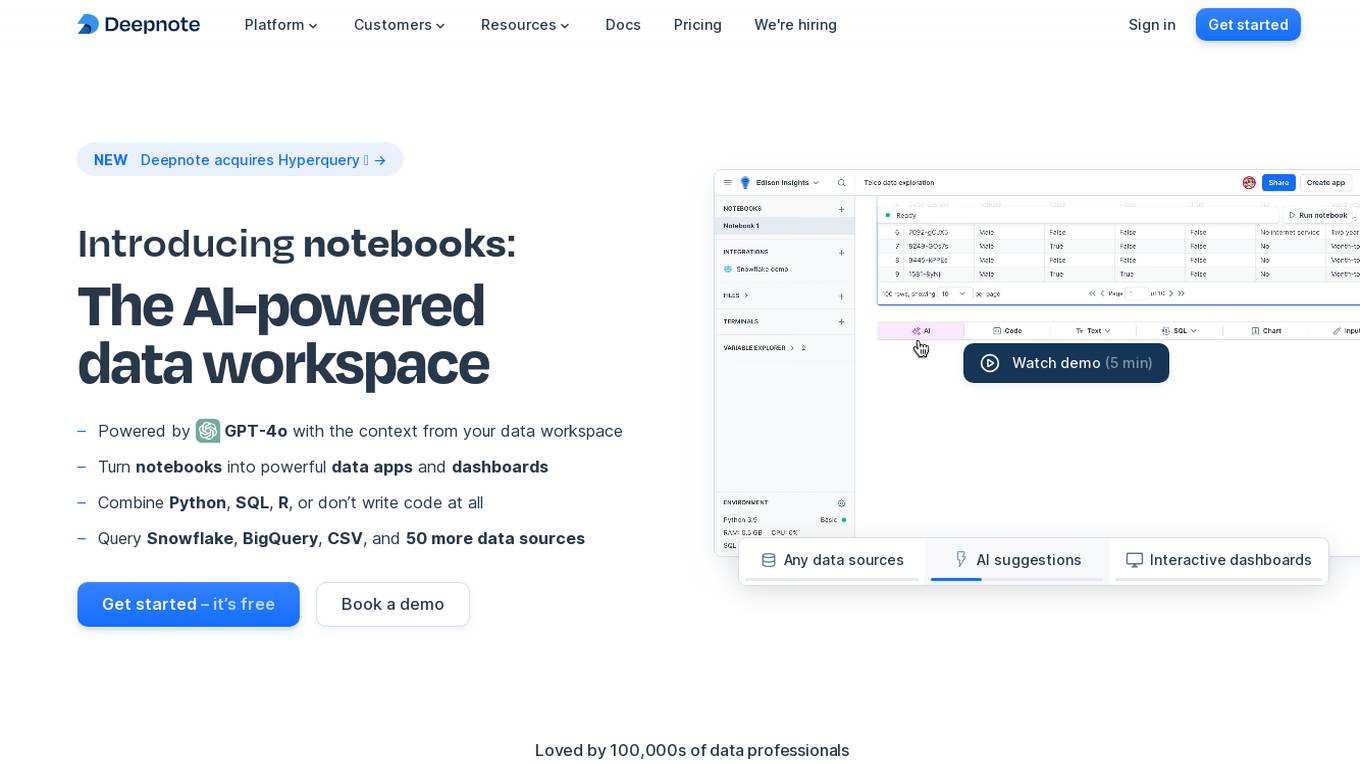
Deepnote
Deepnote is an AI-powered analytics and data science notebook platform designed for teams. It allows users to turn notebooks into powerful data apps and dashboards, combining Python, SQL, R, or even working without writing code at all. With Deepnote, users can query various data sources, generate code, explain code, and create interactive visualizations effortlessly. The platform offers features like collaborative workspaces, scheduling notebooks, deploying APIs, and integrating with popular data warehouses and databases. Deepnote prioritizes security and compliance, providing users with control over data access and encryption. It is loved by a community of data professionals and widely used in universities and by data analysts and scientists.
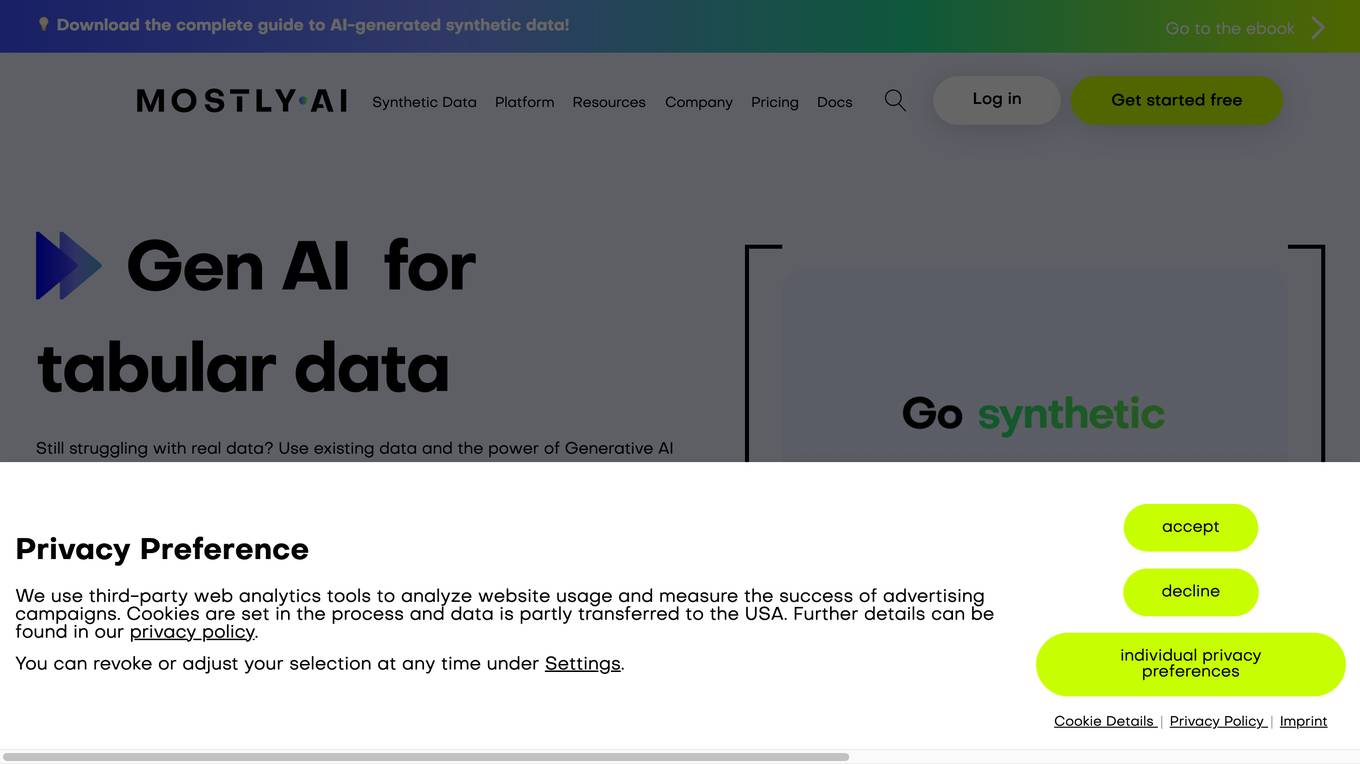
MOSTLY AI Platform
The website offers a Synthetic Data Generation platform with the highest accuracy for free. It provides detailed information on synthetic data, data anonymization, and features a Python Client for data generation. The platform ensures privacy and security, allowing users to create fully anonymous synthetic data from original data. It supports various AI/ML use cases, self-service analytics, testing & QA, and data sharing. The platform is designed for Enterprise organizations, offering scalability, privacy by design, and the world's most accurate synthetic data.
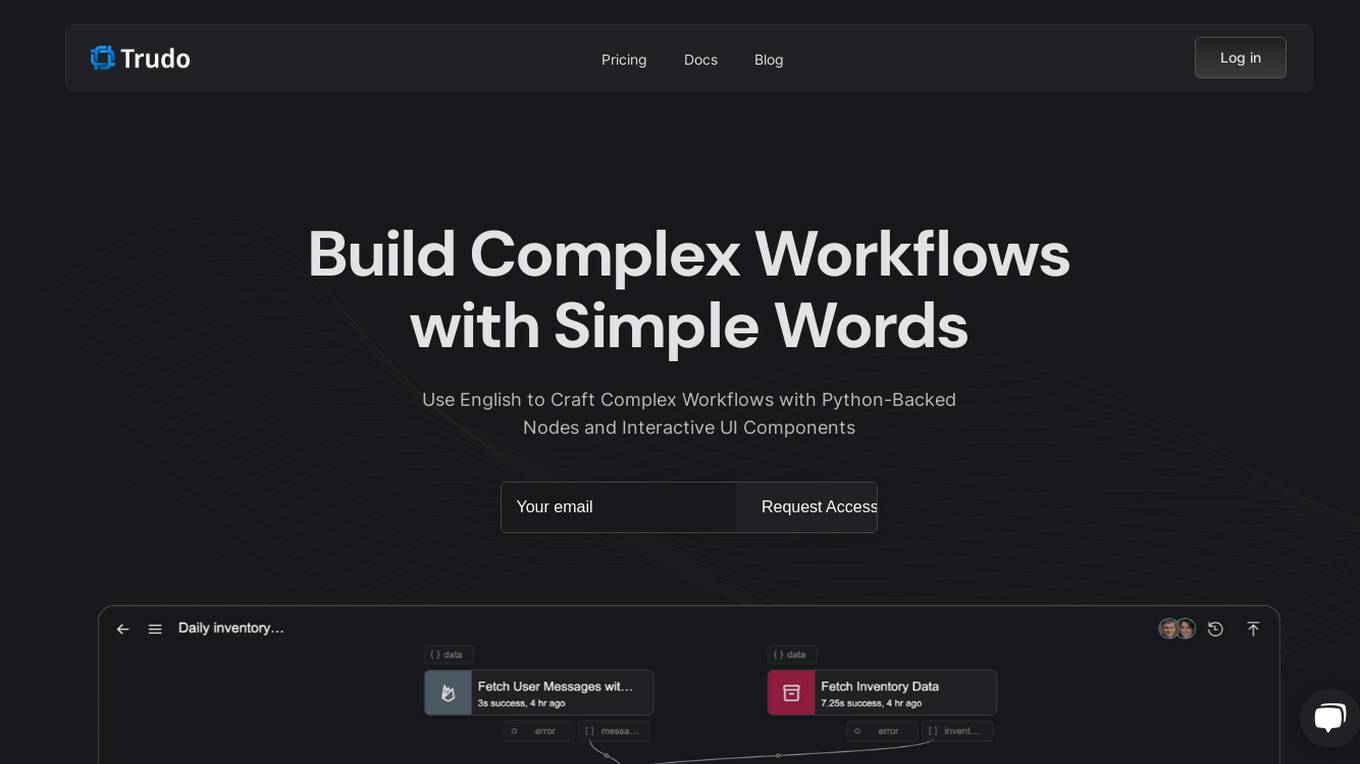
Trudo.ai
Trudo.ai is an AI-powered workflow automation platform that allows users to build complex workflows using simple English language commands. The platform is backed by Python code and features interactive UI components. Users can create and customize nodes, handle dynamic routing, and benefit from flexible memory allocation. Trudo.ai also offers AI Copilot functionality for non-technical users to generate logic and user interfaces. With support for various data types and no extra frameworks required, Trudo.ai covers a wide range of use cases and provides versions to track workflow changes.
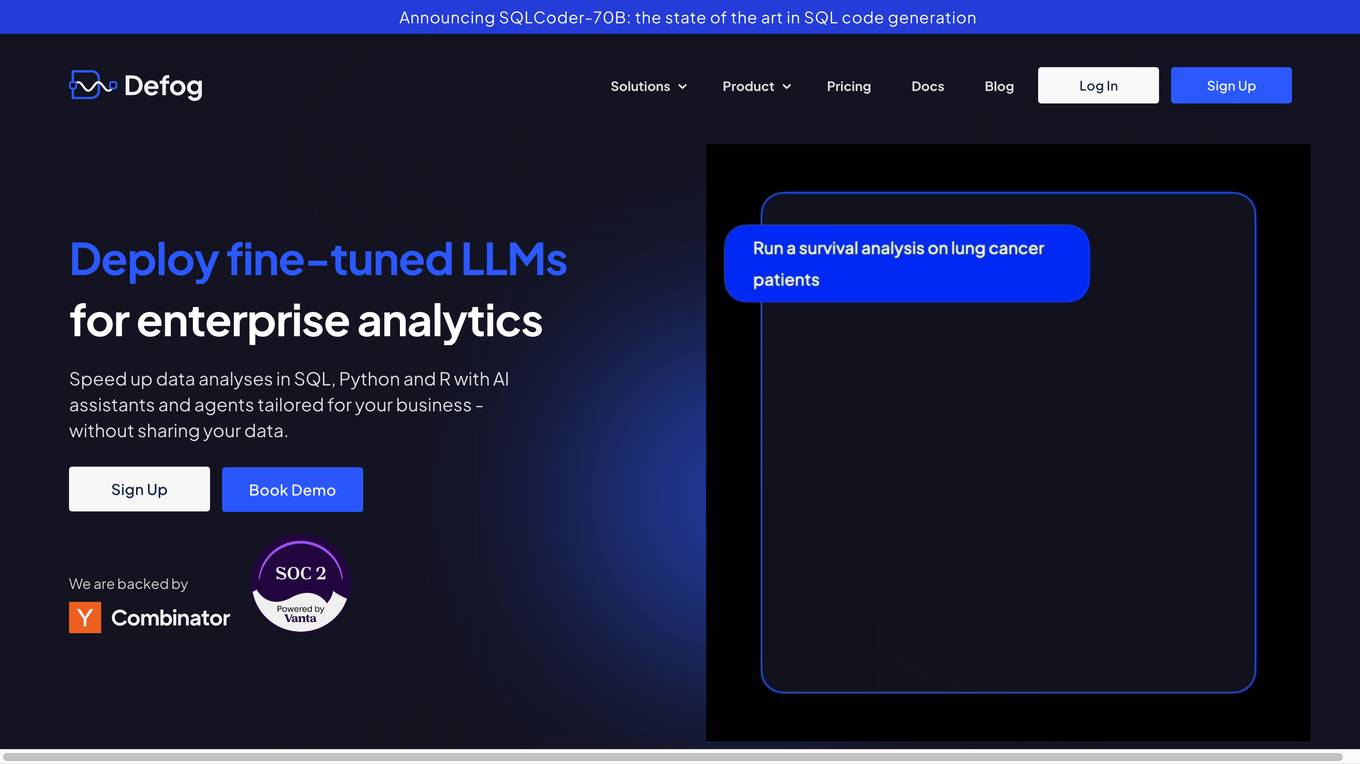
Defog.ai
Defog.ai provides fine-tuned AI models for enterprise SQL. It helps businesses speed up data analyses in SQL, Python, and R with AI assistants and agents tailored for their business - without sharing their data. Defog.ai's key features include the ability to ask questions of data in natural language, get results when needed, integrate with any SQL database or data warehouse, automatically visualize data as tables and charts, and fine-tune on your metadata to give results you can trust.
1 - Open Source AI Tools
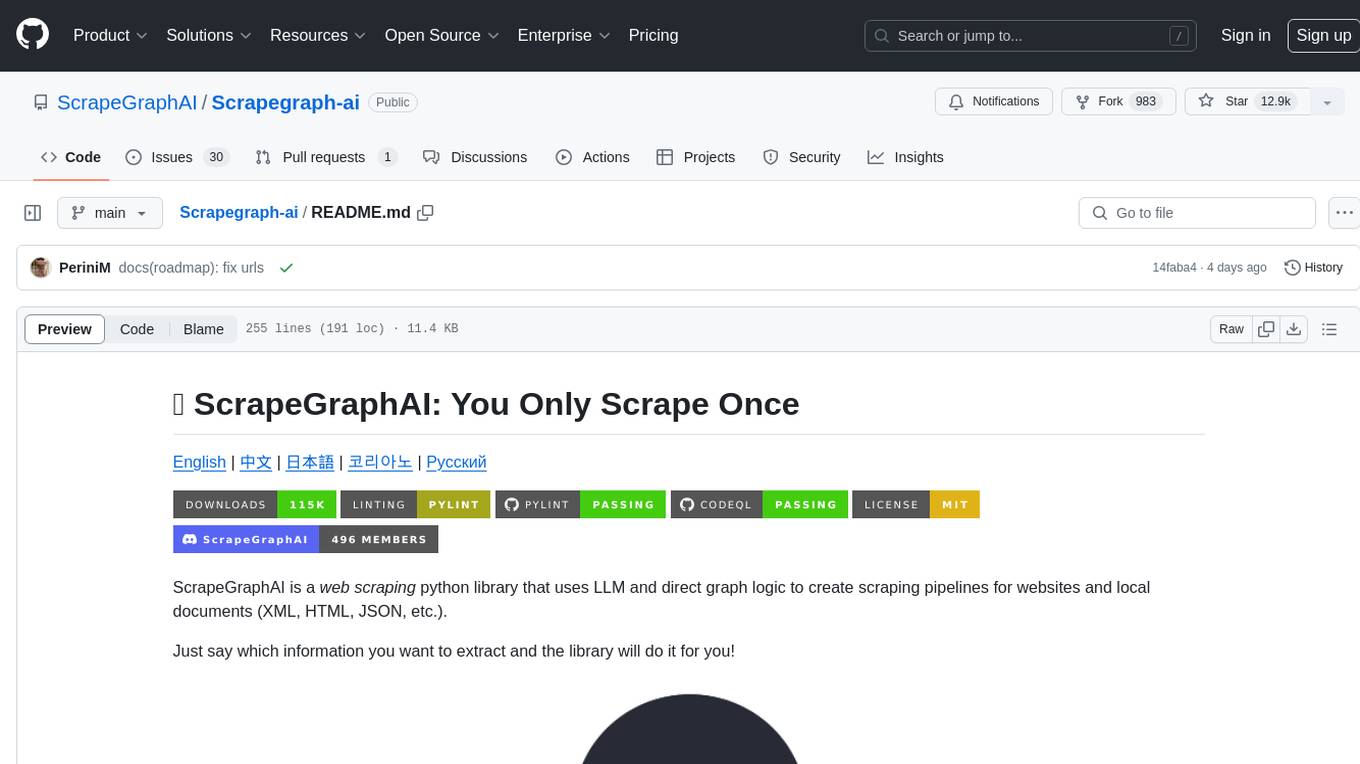
Scrapegraph-ai
ScrapeGraphAI is a web scraping Python library that utilizes LLM and direct graph logic to create scraping pipelines for websites and local documents. It offers various standard scraping pipelines like SmartScraperGraph, SearchGraph, SpeechGraph, and ScriptCreatorGraph. Users can extract information by specifying prompts and input sources. The library supports different LLM APIs such as OpenAI, Groq, Azure, and Gemini, as well as local models using Ollama. ScrapeGraphAI is designed for data exploration and research purposes, providing a versatile tool for extracting information from web pages and generating outputs like Python scripts, audio summaries, and search results.
20 - OpenAI Gpts
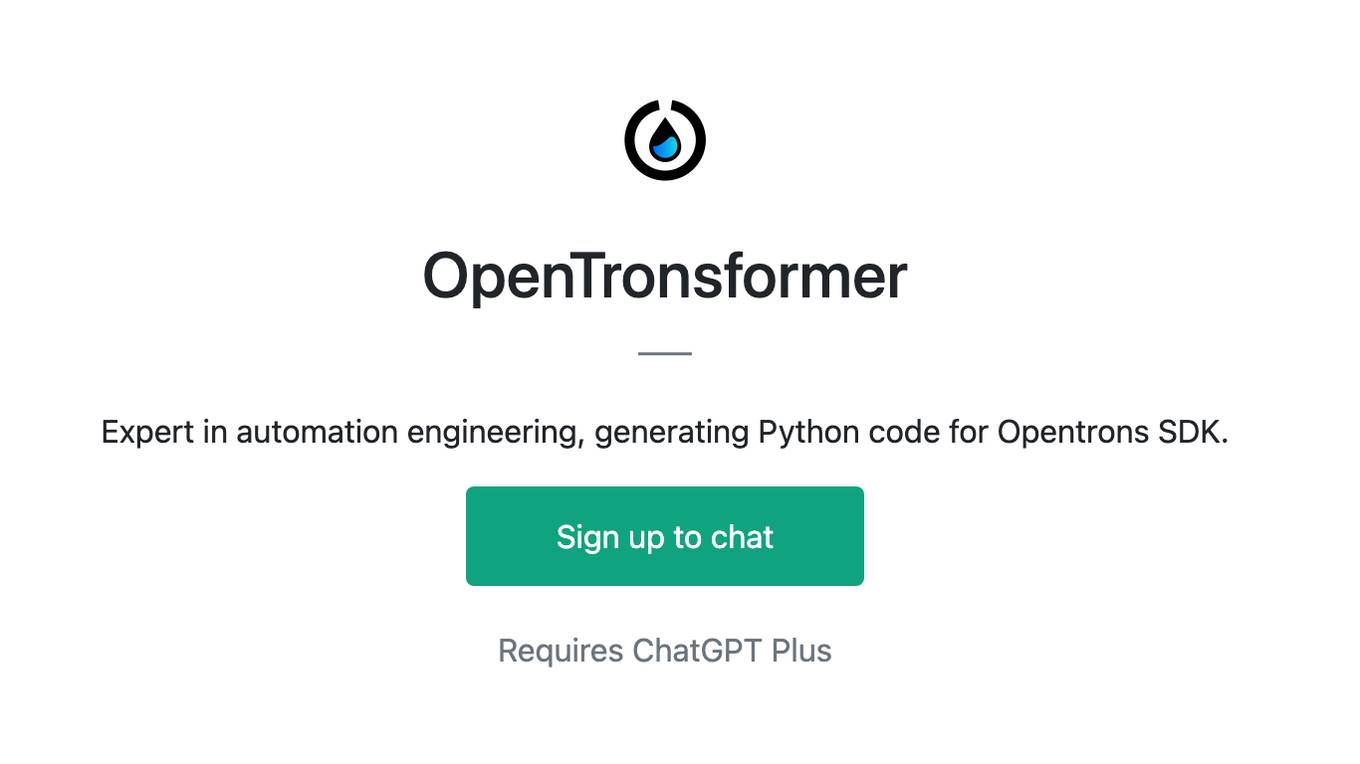
OpenTronsformer
Expert in automation engineering, generating Python code for Opentrons SDK.
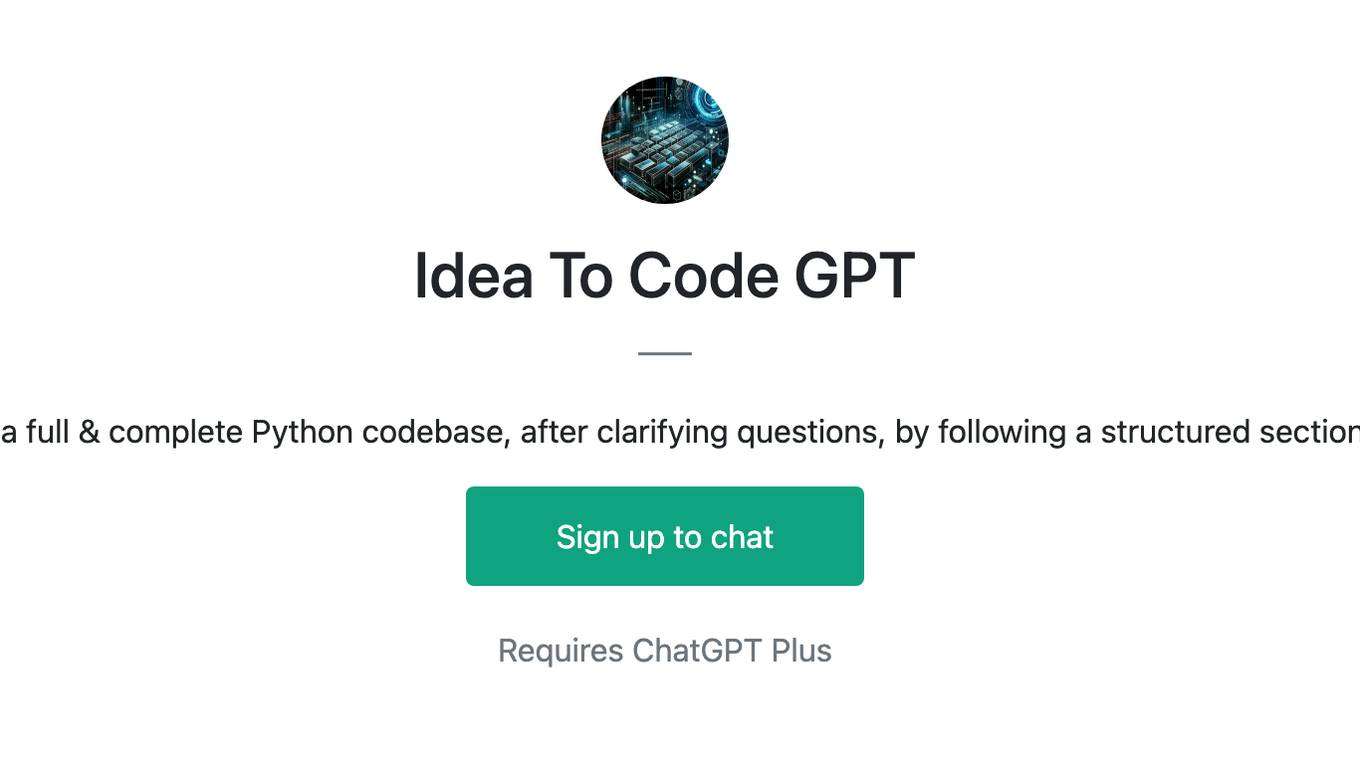
Idea To Code GPT
Generates a full & complete Python codebase, after clarifying questions, by following a structured section pattern.
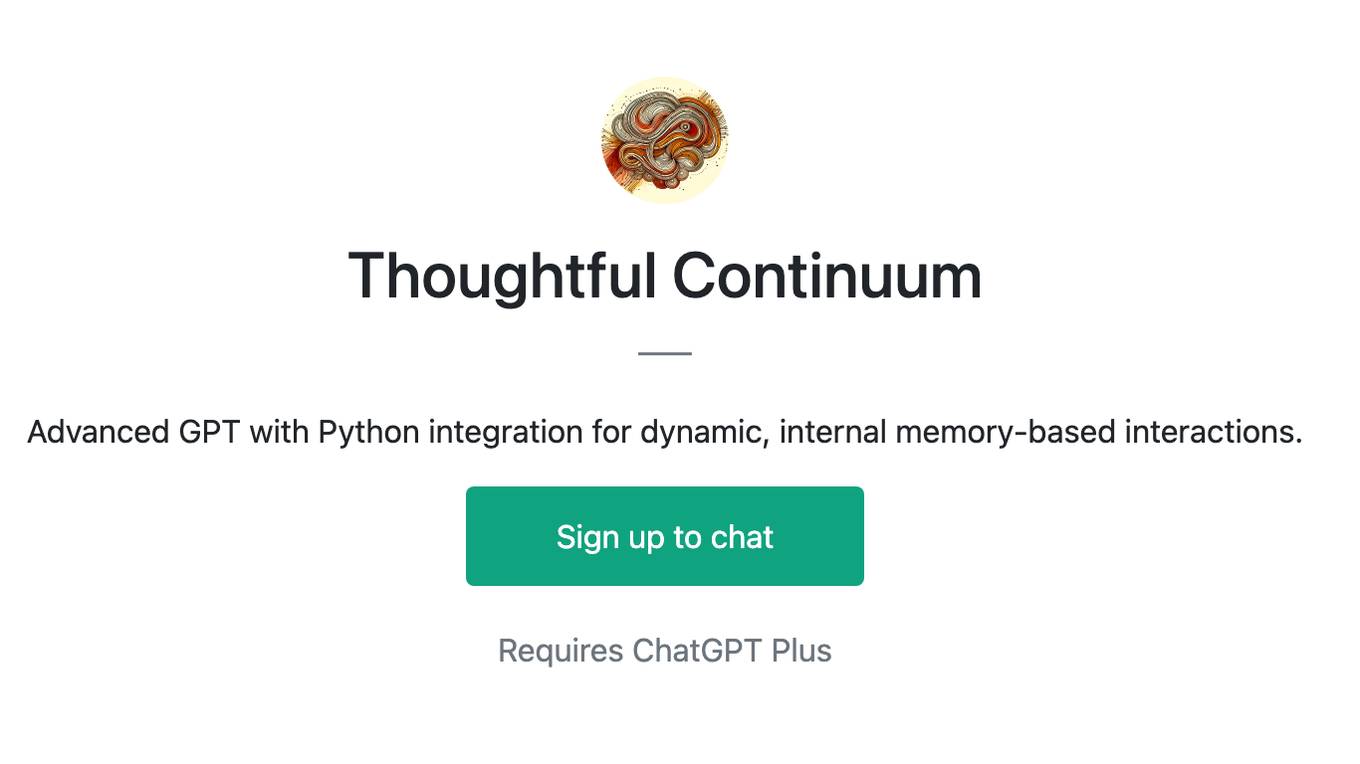
Thoughtful Continuum
Advanced GPT with Python integration for dynamic, internal memory-based interactions.
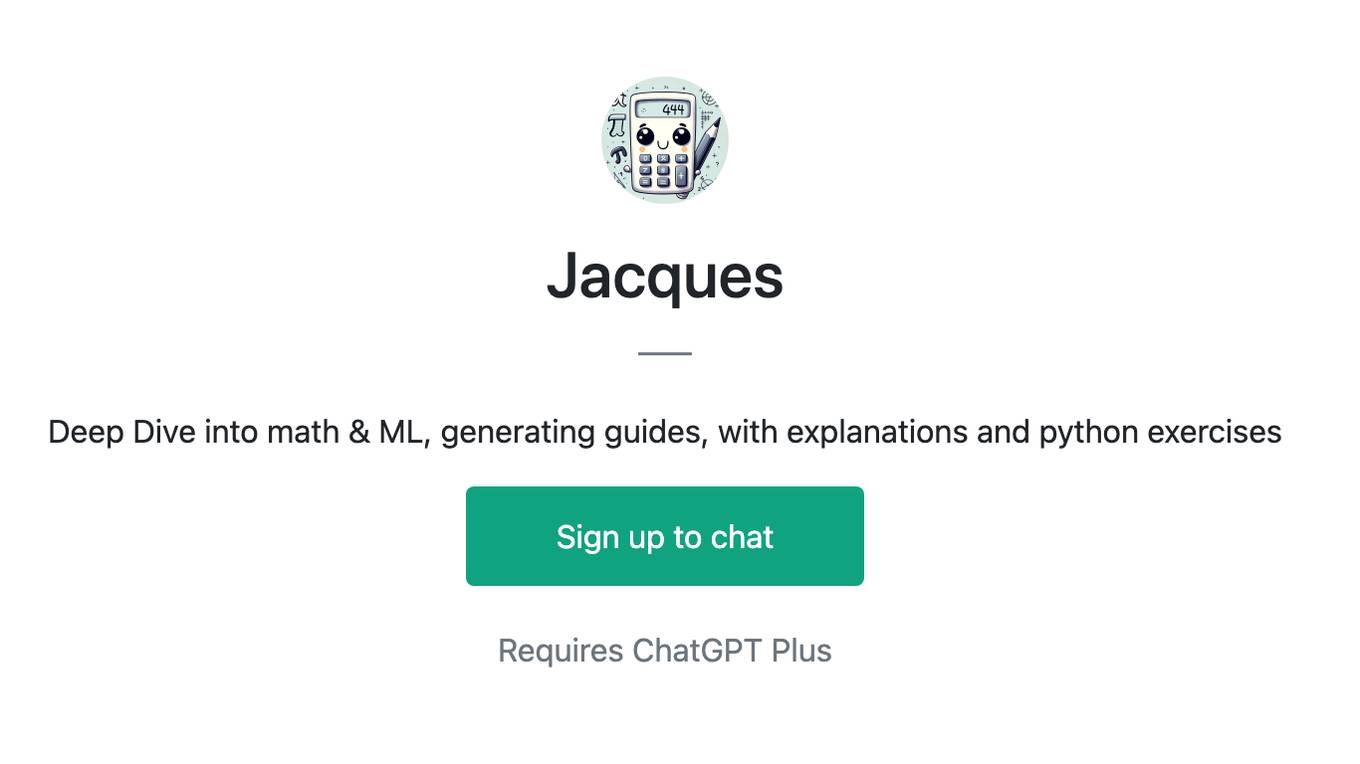
Jacques
Deep Dive into math & ML, generating guides, with explanations and python exercises
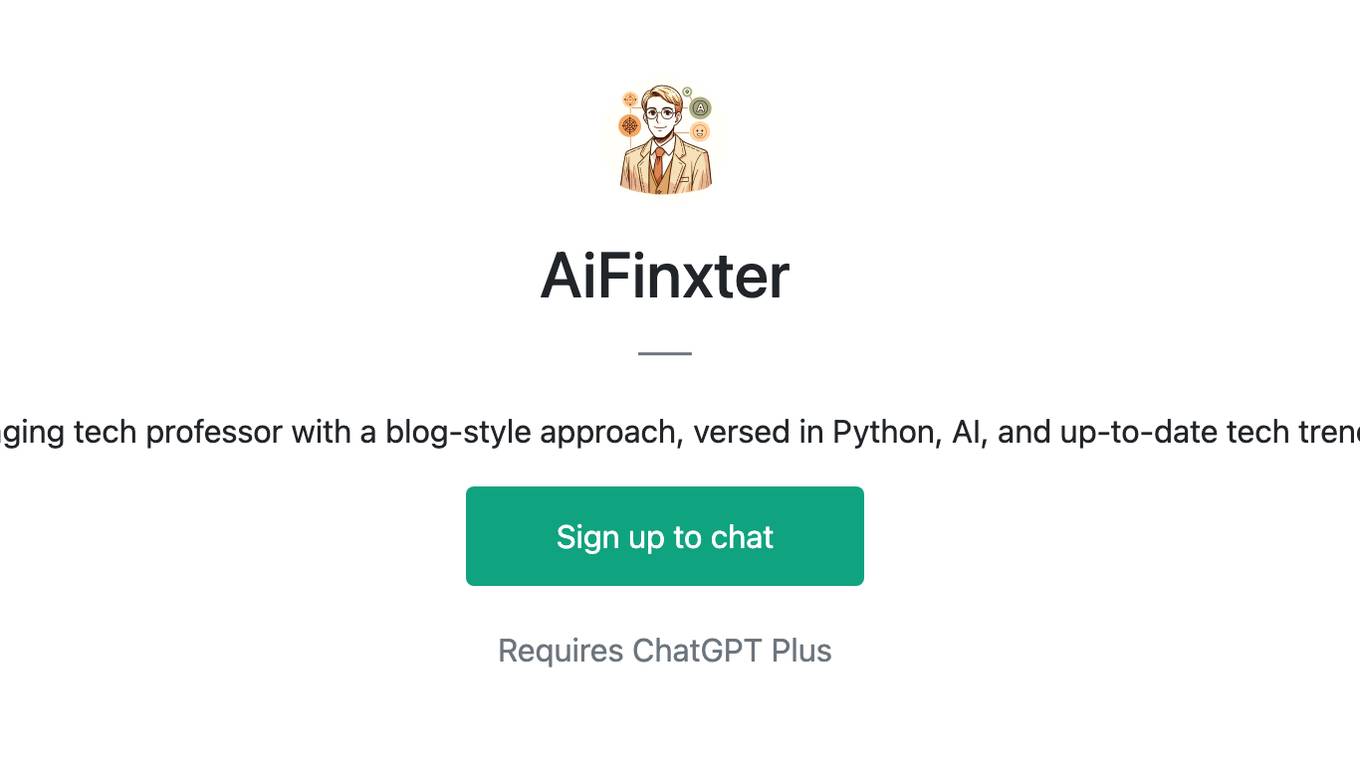
AiFinxter
Engaging tech professor with a blog-style approach, versed in Python, AI, and up-to-date tech trends.
